#acts extremely friendly and shows surface level acceptable emotions
Text
one day i’ll write an articulate post about why the gavin brothers are the most emotionally repressed people in ace attorney and maybe ever but in two entirely separate ways but as of right now whenever i think about that very concept i feel like screaming into a bottomless well so that idea is on hold
#saturn.txt#but you guys know the post right#the one about how the most emotionally repressed person is the one who#acts extremely friendly and shows surface level acceptable emotions#but never the true emotions underneath#you know that post right. you know klavier gavin right#klavier gavin who i can only imagine has perfected his emotions to a t#here is what he can get mad at here is what he can't#he can't cry unless it's picture perfect and he's always amicable for the right people#you know how kristoph gavin has the black locks right#how even at the end he won't talk about why he did what he did#THIS is why ic an't write either of these characters in a satisfying way#because they're so fucking complicated when it comes to emotions and and and#screaming at the top of my lungs only one of them will likely have the chance to open up again#but will he do it? would he do it?#how does klavier gavin even begin to untangle his emotions#did hiding them away from the world make them manifest in major outbursts?#does he just dissociate instead? what has happened what happened#rattling him back and forth#i love the other characters in AA but you cannot tell me that anyone is more repressed than the shit these two have going on
12 notes
·
View notes
Photo

This is a psychoanalytical test called the Szondi Test, as explained by Junji Noe. This test was made by a Hungarian Psychoanalyst, Léopold Szondi.
The following are 8 pictures.
Now, look at them and study them closely.
Which of these 8 do you find the most “scary?”
Really, really try to picture them in a dark alley, coming towards you. Or, who would you want the LEAST to be in an elevator with you? Overall, who gives you the creepiest vibes, or makes you feel disgusted and repulsed among these 8.
Have you chosen yet? Remember your answer and see your results below:
These are all pictures of patients of Szondi. Szondi believed that who you pick will tell something about your personality, but not just anything about your personality -- the part of you that you suppress or at least deny about yourself. Maybe you pushed these feelings and desires down into your subconscious mind, or maybe something you refused to accept about yourself and act in opposition towards.
The format is.
(Number). -condition name-
( General Info )
---
Repression: What it is you're hiding.
Denies it by: Actions, personalities or habits you do to 'counteract' or push back against what you're repressing.
Sublimation: What you show, ever so slightly in your life regarding the repression.
___________________________________
1. The Sadist.
You were most likely dominated by a lot of authoritarian figures, such as parents or teachers. Because of this, you repress the feeling to dominate others, as you've been through your formative years.
You are passive and rather friendly and love to make people happy.
That being said, you react defensively in a passive-aggressive manner when you feel someone is trying to dominate you. This is your way of indirectly punishing them.
But deep inside, you love to see the suffering of other people, physically or emotionally. Though, consciously, you do your best to ignore these thoughts whenever they surface.
---
Repression: The desire to dominate others.
Denies it by: Developing a peaceful and harmless personality. Always helping others.
Sublimation: Creates barriers when they don't want to do something (such as getting to work late). When acting defensively, acts passive-aggressively.
_____________________________________
2. The Epileptic
You react to emotions rather intensely, good or bad. Since you were taught as a child that doing certain things aren't okay, you refuse to let negative emotions such as anger, impulsiveness or irritability manifest.
As such, you probably wear a strong emotional mask and are good at hiding the negative feelings from others whenever they bubble up under the surface.
You compensate by acting meek and friendly, and people probably see you as peaceful and reliable. Although, under pressure, you can explode with these negative feelings and most people are surprised, as you never seemed the person to be so negative.
Repression: Feelings of anger, irritability, and aggression.
Denies it by: Becoming a meek and friendly person; giving off the impression of responsibility.
Sublimation: Rare outbursts when stressed or provoked.
___________________________________
3. The Catatonic
You're most likely an intelligent person with an overactive mind. Not so bad, right? Well, here's the trade-off: in the attempt to stay in reality and fight your overactive brain, you've most likely become dutiful, inhibited and rule-driven. You are unaware of the physical and emotional needs of yourself and others. and often feel disconnected and lost.
Repression: Mental hyperactivity/overactive imagination
Denies it by: Adopting "stereotypical" behaviors.
Sublimation: Often acts defensively and likes to follow their own set of determined rules.
_______________________
4. The Schizophrenic
If you've chosen this woman, then you're most likely repressing apathy for others. You probably struggle in connecting with others. Relating to others is a challenge for you. Maybe even relating to yourself. Your relationships probably lack depth.
To compensate, you're sociable. You love to spend time with friends and family. In a sense, this is a way to mask your sense of loneliness and isolation.
Repression: Feelings of apathy towards others.
Denies it by: Being a very sociable person, with a large circle of friends.
Sublimation: Does not talk about feelings of isolation, or their lack of true affection for others.
__________________________
5. The Hysteric.
You're probably repressing attention-seeking tendencies. You were told as a child to not show off, by adults or peers. As such, you're probably a modest and sincere person. Deep down, you love to be the center of attention and to charm others. Though you're rarely the center of attention, when you are, you're ecstatic. You're likely someone who pays attention to detail, as evidenced by the amount of effort you put into your appearance. This could be your subconscious self showing off, as your conscious self continues to act modestly.
Repression: Desire for attention and admiration.
Denies it by: Acting modestly/staying out of the spotlight.
Sublimation: Chooses rare or extravagant jobs and hobbies. Usually tries to remain elegant and well-dressed so that they still draw attention.
___________________________
6. The Depressive.
On the surface, you're happy and bubbly, like you don't have a care in the world. Well, that's the side you show to the world, at least. Deep within, you're most likely dealing with feelings of self-worthlessness -- even self-loathing and guilt. You probably take your mind off this by focusing on work and other people. Low self-esteem is also associated with this choice.
Picking this picture doesn't mean you're a depressed person, but that you have a predisposition to negative emotions.
Repression: Feelings of worthlessness/inadequacy
Denies it by: Developing a happy and bubbly exterior personality. Focusing on work and friends.
Sublimation: Assumes the role of everyone's "psychologist.” Searching for solutions to other people's problems.
_________________________________
7. The Maniac.
You're most likely logical, mature, and balanced. You don't favor chaos or excessive displays of emotions. You're likely annoyed when people are loud, or when they hold too strong of a belief. This is because inside, you're repressing hyperactive tendencies that would make you lose control. Deep within, you're probably quite impulsive and with extreme energy hurdles. This is probably because your parents or teachers tried to make you "calm down" as a child.
Repression: Impulsiveness and high energy levels.
Denies it by: Being logical, reasonable, and collected. Developing a hatred of excesses.
Sublimation: Avoids places of temptation, such as casinos.
____________________________
8. Dissociative Identity Disorder.
As a child, you've probably been bullied, defamed, or traumatized by a parent, teacher or other family member. This trauma has made you subconsciously make you question yourself as a sexual partner. Now, you probably push your own gender role. Such as being macho, as a man. Or, pushing your femininity as a woman. You probably put down others of your own sex for not acting manly or womanly enough.
Repression: Thoughts of being an undesirable partner.
Denies it by: Emphasizing gender role, acting very macho or feminine.
Sublimation: Sacrifices individuality and real interests to conform to expected male/female stereotype.
237 notes
·
View notes
Text

Szondi test
This is a psychoanalytical test called the Szondi Test. This test was made by a Hungarian Psychoanalyst, Léopold Szondi.
There are 8 pictures. Now, look at them and study them closely. Which of these 8 do you find the most 'scary'?
Really, really try to picture them in a dark alley, coming towards you. Or, who would you want the LEAST to be in an elevator with you? Overall, who gives you the creepiest vibes, or makes you feel disgusted and repulsed among these 8.
Remember your answer.
These are all pictures of patients of Szondi, all of which whom suffered different conditions. Szondi believed that who you pick will tell something about your personality. But not just anything about your personality. The part of you that you suppress or at least deny about yourself. maybe you pushed these feelings and desires down into your subconscious mind or maybe something you refused to accept about yourself. and act in opposition towards them.
It's important to note that, whatever results you do come with, doesn't mean you have a mental condition. It's just that, you potentially have something deep within you that you compensate for.
Most people find the results rather accurate, though. Take them with a grain of salt.
The format is:
(Number). -condition name-
( General Info )
Repression: What it is you're hiding.
Denies it by: Actions, personalities or habits you do to 'counteract' or push back against what you're repressing.
Sublimination: What you show, ever so slightly in your life regarding the repression.
____________
1. The Sadist.
You were most likely dominated by a lot of authoritarian figures, such as parents or teachers. So you repress the feeling to dominate others, as you've been through your formative years.
You are passive and rather friendly and love to make people happy.
That being said, you react defensively in a passive-aggressive manner when you feel someone is trying to dominate you. This is your way of indirectly punishing them.
But deep inside, you love to see the suffering of other people, physically or emotionally. Though, consciously you do your best to ignore these thoughts whenever they surface.
---
Repression: The Desire To Dominate Others.
Denies it by: Developing a peaceful and harmless personality. Always helping others.
Sublimination: Creates barriers when they don't want to do something. ( Such as getting to work late) When acting defensively, acts passive-aggressively.
_____________________________________
2. The Epileptic.
You react to motions rather intensely, good or bad. Since you were taught as a child that doing certain things aren't okay, you refuse to let negative emotions such as anger, impulsiveness or irritability manifest.
As such, you probably wear a strong emotional mask and are good at hiding the negative feelings from others whenever they bubble up under the surface.
You compensate by acting meek and friendly. And people probably see you as peaceful and reliable. Although, under pressure. You can explode with these negative feelings and most people are surprised, as you never seemed the person to be so negative.
Repression: Feelings of anger, irritability, and aggression.
Denies it by: Becoming a meek and friendly person, and giving off the impression of responsibility.
Sublimination: Rare outbursts when stressed or provoked.
___________________________________
3. The Catatonic
You're most likely an intelligent person with an overactive mind. Not so bad, right? Well, here's the trade-off. In the attempt to stay in reality and fight your overactive brain, you've most likely become dutiful, inhibited and rule-driven. You are unaware of the physical and emotional needs of yourself and others. and often feel disconnected and lost.
Repression: Mental hyperactivity/ overactive imagination
Denies it by: Adopting "stereotypical" behaviors.
Sublimination: Often acts defensively and likes to follow their own set of determined rules.
_______________________
4. The Schizophrenic
If you've chosen this woman, then you're most likely repressing apathy for others. Probably struggle in connecting with others. And relating to others is a challenge for you. Maybe even relating to yourself. Your relationships probably lack depth.
To compensate, you're sociable. Love to spend time with friends and family. In a sense, this is a way to mask your sense of loneliness and isolation.
Repression: Feelings of apathy towards others.
Denies it by: Being a very sociable person, with a large circle of friends.
Sublimination: Does not talk about feelings of isolation, or their lack of true affection for others.
__________________________
5. The Hysteric.
You're probably repressing attention-seeking tendencies. You were told as a child to not show off, by adults or peers. As such, you're probably a modest and sincere person. Deep down you love to be the center of attention and charming others. Though you're rarely the center of attention, when you are, you're ecstatic You're likely someone who pays attention to detail. As evidence of the amount of effort, you put into your appearance. This could be your subconscious self showing off, as your conscious self continues to act modestly.
Repression: Desire for attention and admiration.
Denies it by: Acting modestly / staying out of the spotlight.
Sublimination: Chooses rare or extravagant jobs and hobbies. Usually tries to remain elegant and well-dressed so that they still draw attention.
___________________________
6. The Depressive.
On the surface, you're happy and bubbly. Like you don't have a care in the world. Well, that's the side you show to the world, at least. Deep within, you're most likely dealing with feelings of self-worthlessness, even self-loathing and guilt. You probably take your mind off this by focusing on work and other people. Low self-esteem is also associated with this choice.
Picking this picture doesn't mean you're a depressed person, but that you have a predeposition to negative emotions.
Repression: Feelings of worthlessness/inadequacy
Denies it by: Developing a happy and bubbly exterior personality. Focussing on work and friends.
Sublimination: Assumes the role of everyone's "psychologist", searching for solutions to other people's problems.
_________________________________
7. The Maniac.
You're most likely logical, mature and balanced. You don't favor chaos or excessive displays of emotions. You're likely annoyed when people are loud, or when they hold too strong of belief. Because inside. You're repressing hyperactive tendencies that would make you lose control. Deep within, you're probably quite impulsive and with extreme energy hurdles. This is probably because your parents or teachers tried to make you "calm down" as a child.
Repression: Impulsiveness and high energy levels.
Denies it by: Being logical, reasonable and collected, and developing a hatred of excesses.
Sublimination: Avoids places of temptation, such as casinos.
____________________________
8.Dissociative Identity Disorder.
As a child, you've probably been bullied, defamed, or traumatized by a parent, teacher or other family member. This trauma has made you subconsciously make you question yourself as a sexual partner. Now, you probably push your own gender role. Such as being macho, as a man. Or pushing your feminity as a woman. You probably put down others of your own sex for not acting manly or womanly enough.
Repression: Thoughts of being an undesirable partner.
Denies it by: Emphasising gender role, acting very macho or feminine.
Sublimination: Sacrifices individuality and real interests to conform to expected male/female stereotype
—————
Source: https://bogartx.com/home/psychoanalytical-test-called-the-szondi-test-will-tell-you-something-about-your-personality
1 note
·
View note
Text

☾.:°。ALANA “LANA” BLACKWELL. TWENTY TWO. AUSTRALIAN.
[she/her & 22/January 10th] Is that KRISTINE FROSETH?! No it’s just ALANA BLACKWELL. From our interview we have heard that the SPITFIRE is apparently a PHOTOGRAPHER who’s been living a lavish lifestyle in ADELAIDE, AUSTRALIA with 21M followers! Now that they’ve signed a contact to pricelesshqs fans will be ecstatic to see them on screen. But rumor has it they are hard to deal with as they’re impulsive, stubborn, self-destructive. Fortunately for us we’ve heard they’re actually witty, passionate, adventurous. Let’s see how they survive our show while they arrive in the luxurious life of pricelesshqs! (laura, 22, GMT)
hey hi hello i’m laura and i’m going to jump straight in with info about my lil angel baby alana!!! pls like this or slide into my inbox if you’re down for plotting, honestly i’m here for anything and everything!!
BACKGROUND:
alana was born in australia to a single mother, rosanna blackwell. alana’s farther was nothing more than a fleeting affair her mother had in her late 20s, his whereabouts unknown to rosanna when she realised she was pregnant. alana’s mother was a well known surfing champion, with multiple gold medals, along with being a sports model.
growing up, it was simply just alana and her mother for a very long time (along with multiple babysitters and nannies for when her mother would be away on surf trips and modelling shoots, but alana never felt as though she missed out on any time with her mother. rosanna would always be as present as possible, and take alana along wherever she could). alana was a very content little girl, spending most of her time in the sea, on the sand, learning to surf. alana’s mother had a strong passion for photography also, so when they wasnt on the beach alana was being taught how to hold a camera and capture beautiful moments
when alana reached 7/8, things changed. alana’s mother fell in love and married a man who, everyone else except her mother could see, was only interested in the money and name alana’s mom had made for herself. the once loving household she had grown up in had turned cold, dark and scary, with arguments left right and centre and a man she barely knew implementing rules upon both of their lives. a few years later, and along came alana’s half sister, delilah.
when alana reached her teenage years she was determined to be away from the house as much as possible, spending the majority of her days taking photographs and crafting her art. slowly, her instagram following began to grow.
at 17, disaster struck alana’s life once more, when alana’s mother passed away in a tragic accident. all of her money had been left to her step-dad, and she found herself living the pages right out of a cinderella book, feeling more and more like an unwelcome guest in her own home. turning to drugs, alcohol, and one night stands it wasnt long before alana was falling off the tracks.
once she finished school, alana took the money her mum had saved away for her college tuition fund, packed a bag, hoped on a plane without a word to anyone, and never looked back.
with no place to go, and no place to be, alana began to travel. on her travels, her photography picked back up, and once again her Instagram following was rising.
before alana knew it, she was being offered job shoots for high end fashion brands, had thousands of people commenting on her pictures each day, and was somewhat in demand.
but while alana’s career was speeding up, her need to self destruct, drink too much, and make bad decisions was not slowing down. after a year or so, the photography shoots werent a priority: drinking was. partying was. slowly, alana would start missing shoots, cancelling them, and eventually not booking any at all. money was fading fast, as was her name in the high end fashion photography business.
hearing about priceless, alana jumped at the chance. she is hoping this will be a way to earn some money and restore her name and hopefully expand her line of work from more than just fashion photography.
PERSONALITY/INFO:
alana is very sarcastic and witty, and extremely loving and passionate!!
since her mothers death she has a “dont need anyone” mentality and is fiercely independent, which isnt always a good thing because it means she never accepts any help
due to the only relationship she witnessed growing up being a toxic one, she is also very anti-love and believes everyone only wants you in their life for their own gain - she isnt very trusting
she has a quick temper, and doesnt tend to think before she speaks - her words are by far her deadliest weapon, and acts on her emotions far too much. she is self destructive without really meaning to be, and her coping mechanism is closing people out and turning to alcohol.
she finds it very hard to open up, and has a hard time allowing herself to become attached - with both platonic and romantic relationships. she tends to cut a run, both mentally and physically. having never stayed in one place for too long (other than growing up in aus), packing a bag and up and leaving without a word to some place new seems to be a habit of hers, especially if she feels herself becoming attached
but she has a lot of love to give!!!! she is very outgoing and adventurous and friendly, she’s super great at creating surface-level friendships, she’ll be the first to drag someone out of bed to try something new and she’s all ears and great advice for other people’s problems.. just not sharing her own!
Alana is bisexual!! and she’s never had a real relationship, or best friend.. she has had hundreds of flings, and friends, but no deep connections with anyone really. she’s just a lonely little mess really
WANTED CONNECTIONS
I am so down for anything!!! her travels/photography have taken her all over the world, so i imagine she would of met many people in many places!!!!! the one connection i do really want, can be male or female, is someone she had like a months fling with and is the closes she ever came to realllllllly liking someone and they went on crazy adventures and spent all their time together and then alana pulled her disappearing act because fear struck in and this is the first time they’ve seen each other since!!
#my god this is so long and rambley im SORRY#i feel like i dont even have half the info i want in there yikes#i might redo this at a later date#priceless.intro
2 notes
·
View notes
Text
qb anime of the year list 2018
Anime of the Year 2018 - the year of girls going to aquariums together
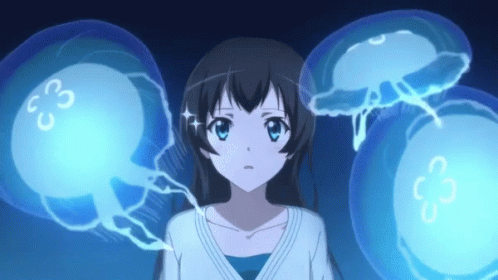
I’ve seen at least one person who claimed that 2018 was the best year for anime in recent memory and I’m inclined to agree. A large majority of my top ten list is shows that I would consider perfect and even shows that blew away what I thought was possible in the medium. It was a revolutionary year and makes a strong argument that anime wasn’t a mistake after all. - qb
#1
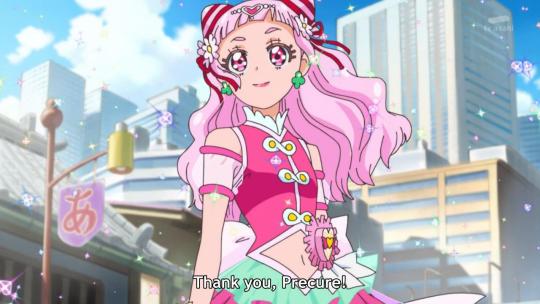
Hugtto! Precure blew away my expectations every week for close to a year. I don’t exactly know what to say about it here, since this isn’t the last time I’ll talk about it for sure. It doesn’t even end in 2018, but it was such a huge part of my 2018 in anime that it would be inaccurate to not include it. The only way I can think to explain Hugtto! Precure is to talk about the Netflix She-ra reboot. She-ra’s a pretty basic modern Dreamworks cartoon, with some interesting ideas thrown in and likable characters, but mostly held back by what they could realistically allot for production. Because of this limitation, She-ra goes hard on a single perfect episode (if you’ve seen it, you know which one) that stands out in a big way and shows the full potential of what they set out to make. Usually, Precure is lucky to get a handful of these stand-out episodes in a season, and most of the time just gets by, due to being an annual series that can never, ever take a break. Normally, the first few episodes of a Precure season can be counted on to be strong, but the realities of anime production being hella tough inevitably catch up.
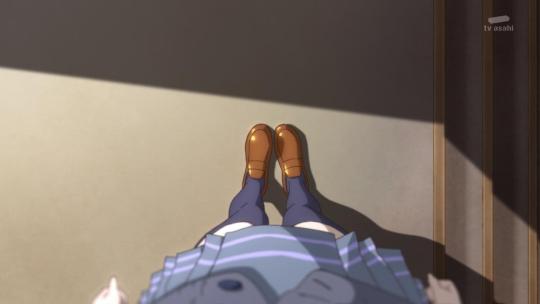
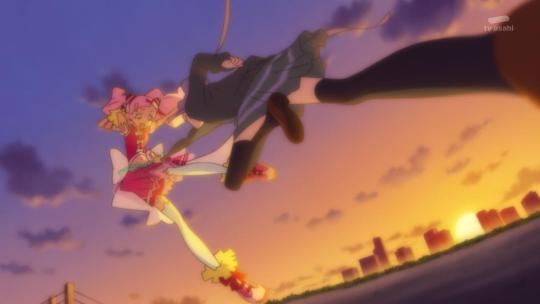
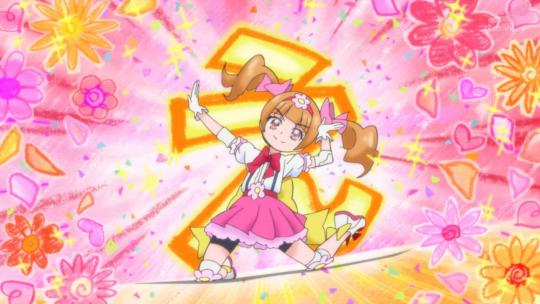
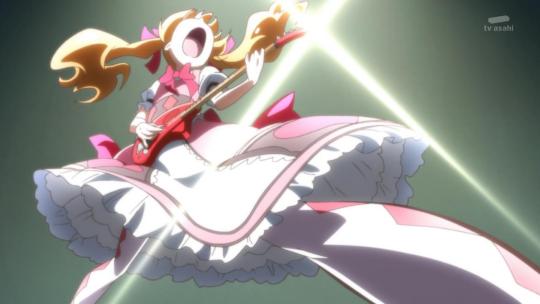
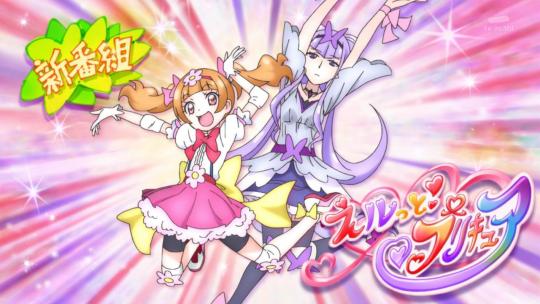
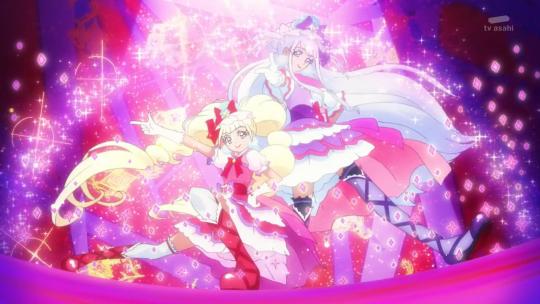
Hugtto! Precure started with an incredible opening arc, then never let off the gas pedal. Nearly every episode of Hugtto is a stand-out, never-before-seen, innovative tour-de-force. The combination of production miracles that resulted in Hugtto has been talked about by me on this blog before, (http://vanilla-blessing.tumblr.com/post/176000267859/hana-is-getting-unstable-a-pink-precure) but the length of time that Hugtto stayed in the paint, going extremely hard every single week with few exceptions, was just absurd. Every season of Precure has one or two peaks, sometimes a good season gets lucky and has even more, the best seasons bat a solid average, but are still expected to be held back by reality. Coming out of the fifteenth season of Precure with a majority of the best episodes in the entire franchise isn’t something that I can wrap my head around, but it definitely happened, mostly in 2018. It’s simultaneously a love letter to the franchise’s past, present, and future made by the biggest Precure fans on the planet, and it’s unquestionably the best season. Hugtto threw what we all knew was true and had accepted about Precure clear out the window, retroactively made older seasons better, watered my crops, brought world peace, ect.
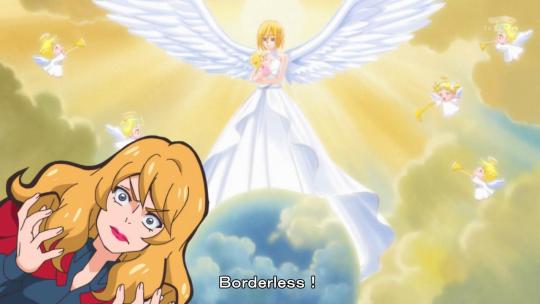
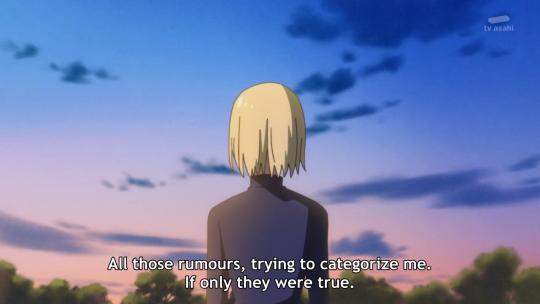

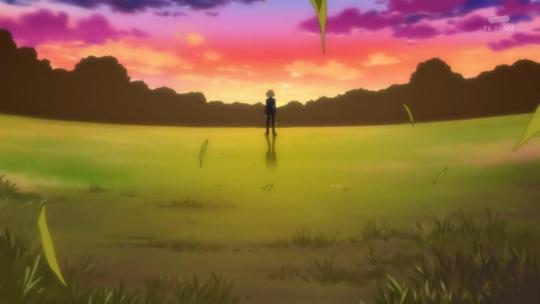
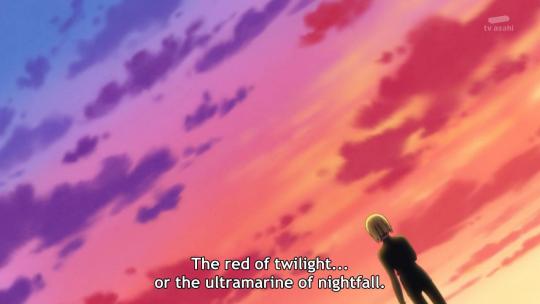
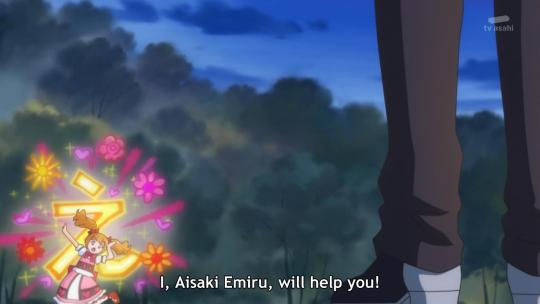
Oh yeah and boys can be cures now.
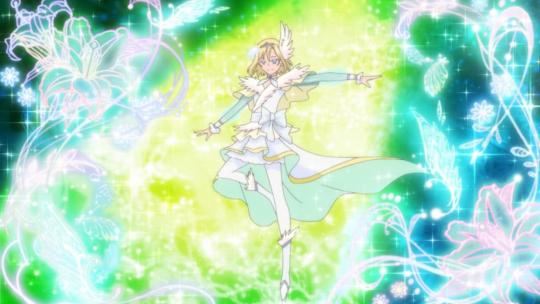
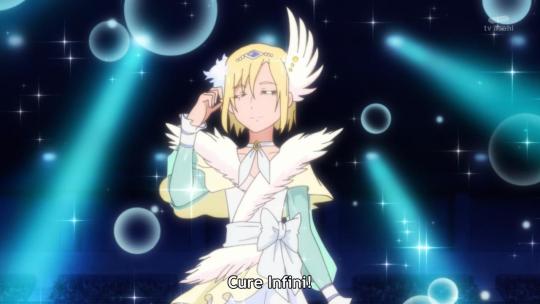
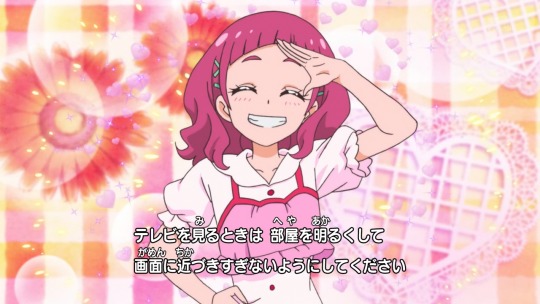
#2


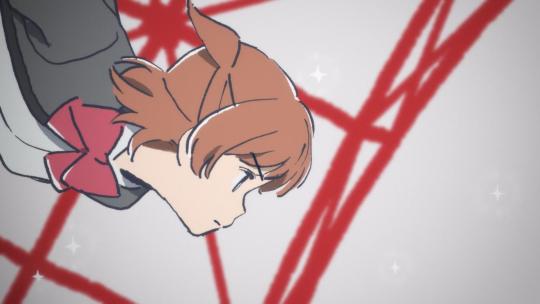
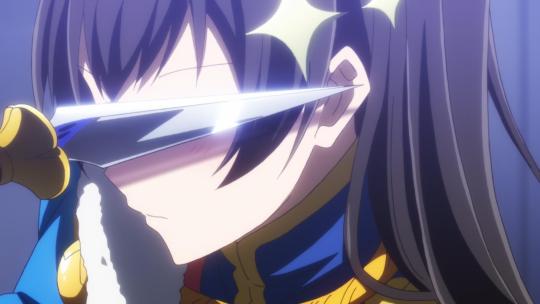
I’m definitely not done with Revue Starlight and this won’t be the last time I talk about it. Revue Starlight essentially carried the Summer 2018 anime season on its back. Starlight absolutely dominated my anime watching schedule; my week was seriously just waiting for and watching different translations and releases with every other show being almost incidental, far less important than waiting for the song lyrics to get translated for an episode I had seen three times already. I won’t get into everything here, since I’ve already talked about it on this blog after all (http://vanilla-blessing.tumblr.com/post/179023723689/subtext-is-for-cowards-revue-starlight), but I need to reiterate that it was such a commanding, unique, stylized experience and didn’t drop a single episode in its entire absurdly high-level production. The only reasonable explanation for this is devil magic, and hell, it was worth it. Revue Starlight is probably in my top 5 anime of all time and I wouldn’t get this list out if I said everything I wanted to say about it. It’s great. Watch it twenty times.
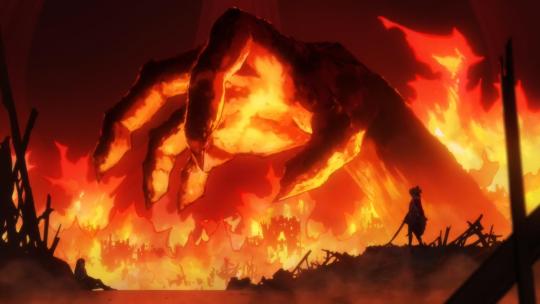
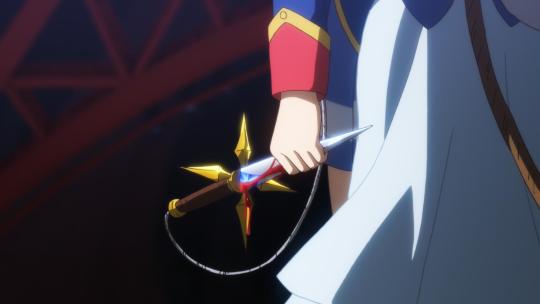
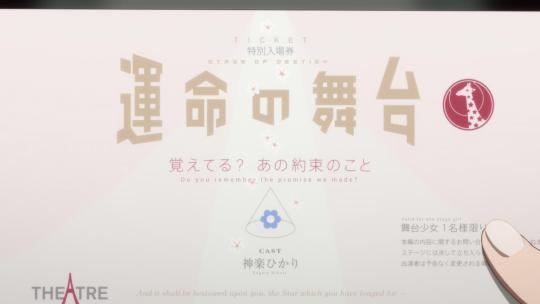
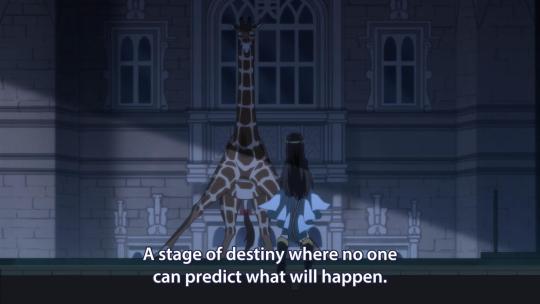
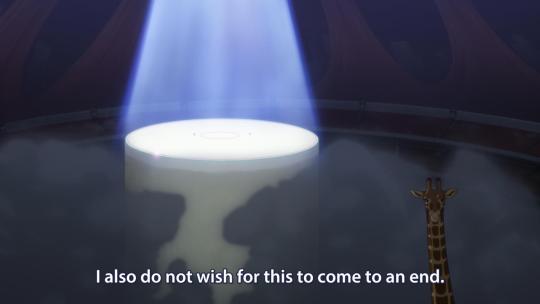

#3

Pop Teen Epic, or Hoshiiro Girldrop, was the most wildcard that has ever been in seasonal anime, and could have been absolutely anything. What none of us predicted was just how much of anything this show would be, encompassing an unprecedented range of artists, voice acting talent, and whatever AC-bu are, each giving their very individual takes on a self-described shitpost comic strip, sometimes covering the exact same material two or three times, with no regard for any sort of cohesion or structure.
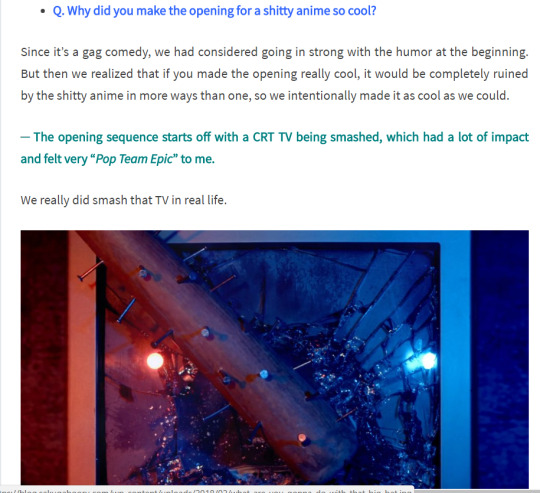
Nothing about this idea should have been funded, nothing in Pop Team Epic has any reason to work, and as a straight adaptation probably wouldn’t have worked. PTE spun gold from trash through the raw effort of artists doing their own thing, which captures the original spirit that made the formerly-cancelled comic popular in a way that’s much too intelligent for haters to understand. Also it got a dub, which is the most ridiculously bad idea i’ve heard in my life, and it owns that it happened.
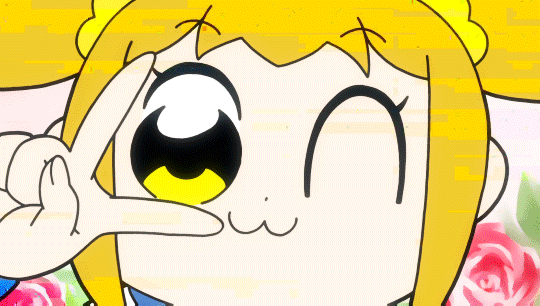
#4
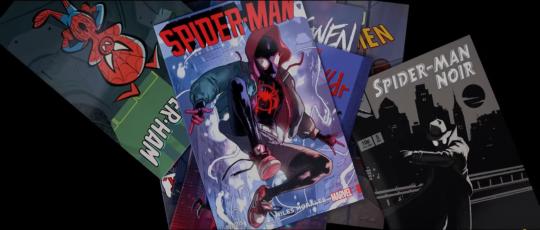
Spider-man into the Spider-verse is legit the best comic book movie ever made. It’s a fun, expressive twist on the most tired superhero origin story of all time, and showcases some of the most sssssssssstyle and raw, real emotion I’ve ever seen in animation. Its particular selection of influences is brilliant and poignant, rising far above the simple fanservice you’ve come to expect from Spider-man. The unrelenting individualistic spirit of this movie will stick with you the longest in the soundtrack, bravely incorporating a side of pop music that you don’t usually get to see in big-budget productions, pulling soundcloud rappers out of their grody (i’m told) dens into the spotlight with equal importance alongside the heroic score. Spider-verse is all about establishing your own unique flavor, and it manages to overwrite every other entry in this cursed franchise with its bold taste.
youtube
youtube
#5

It doesn’t make sense to me how amazing Aggretsuko’s dub is. The impeccable timing of each line, the perfect integration with the comedy, and the optimal length of the episodes are all far beyond what I expected from a Netflix show. It not only converted the original series of shorts that I already had on my top 10 the first year into a godlike longer series I didn’t know I wanted, but went to the effort to bring real metal singers in for the karaoke. Honestly just repeat everything I said in my 2016 list and multiply it by five. I hope they make more. They’re making more.

#6
youtube
I was pretty slow to pick up anime in the Winter 2018 season, but I never missed Hakumei and Mikochi, maybe because it was like, the only simulcast on my favorite online anime streaming subscription service HiDiVE. The subs weren’t great, and it certainly wasn’t all that popular, but it was just the relaxing show I needed. Hakumei and Mikochi brought me back to my favorite non-racist parts of the Redwall series of books: friendly animals, delicious foods, alcohol, and rustic songs. I was ready to put it on my list for simply being a cute healing foodie anime, but to my surprise, it had much more in store within its tiny world: stark confrontations with mortality, a shy riverside necromancer, the inexplicable remake of The Raid: Redemption in miniature, fashion trends, frogs, carpenter weasels, carpenter skeletons, ghost celebrations, a country beetle with lofty dreams. The list of memorable people, places, and things contained in the gnomish roommates’ tiny world goes on and on.
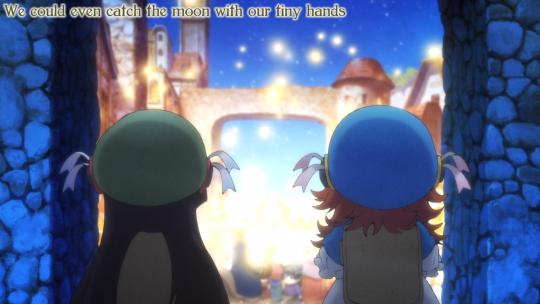
Masaomi Ando’s directing went completely along with the storybook aesthetic, maybe even to an overall detriment, which is exactly the kind of reckless commitment to style I love to see. The distinctive paneling, constantly gorgeous backgrounds, and deliberate pacing perfectly captured the imaginative stories I loved to read as a kid, but with more alcohol, and more sophisticated themes under the surface. Even something anime rarely get right, endings, were perfectly capstoned every week with a short digest that explored more of the history, legends, and very personal lore of their small, unique world. At its core, Hakumei and Mikochi is the calming story of tiny roommates you think it is, but it’s also so much more. They have day jobs and get drunk and remodel their house after it explodes that one time. They gamble dangerously to escape a blizzard, help a photographer give herself a little credit, and rescue their neighbor from a fancy grave of her own making. By the end of the show Hakumei practically built half a town. The collective stories from their everyday adventures build into something tremendous, and it all wraps up on the most perfect ending sequence I could have hoped for, which calls back to every story thus far as a new verse of the show’s central duet is sung. In any reasonable AnimeOTY Hakumei and Mikochi would be my top anime of 2018, but this year, the competition was unreasonable. This show will just have to settle for being the best regular anime of the year.
youtube
#7
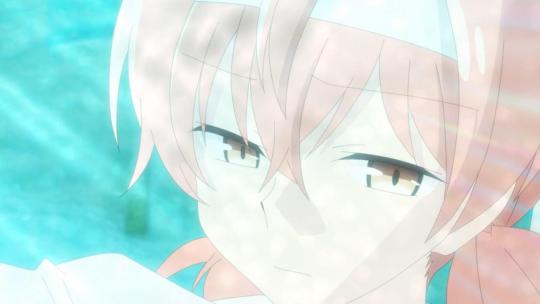
Bloom Into You is an incredible adaptation of an apparently yuri romance manga that raises the bar for anime adaptations in general. I don’t know when, but somewhere along the line I stopped expecting that serious capital R Romance anime would have a distinctive style, and gave up to the notion that there was no demand anymore and a stylized, seinen/josei romance would just never get made. Well that was 2016 and then Scum’s Wish happened which this blog has covered extensively.(http://vanilla-blessing.tumblr.com/post/168842023559/how-lerche-adapted-an-average-trashy-romcom-into, http://vanilla-blessing.tumblr.com/post/168789506264/scums-wish-and-our-messy-uncomfortable) To me Bloom Into You feels similar in concept, as a difficult romantic situation with no easy answers or completely happy people. The main perspective character, Yuu, is among my favorite romantic leads in any series; she doesn’t get romantic feelings, although she wants to, and despite being easily motivated, is kind of dispassionate. Her relationship that she was pushed into with Touko might as well be out of mutual convenience, since Touko doesn’t want to fall in love with someone who would love her back, and Yuu doesn’t think she can.
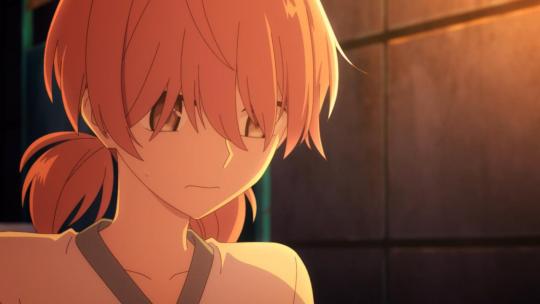
Yuu filters the developments of the series as they grow closer through a very different perspective compared to more emotional leads of usual romance stories, methodically breaking down and considering where she’s at, observing where others are at, before taking an action that makes sense to her. Her growth through the series takes a very different direction than the common dramatic formula; instead of running headfirst into misunderstandings to overcome romantic challenges, she’s compelled to take a step back and position herself in a way that allows her to understand and confront her girlfriend’s issues. The changes that she experiences herself during this process are extremely gradual, but are no less significant to her. Although the dramatic weight of the series is obviously all about Touko, the central thesis of Bloom Into You is to explore Yuu’s complex feelings, and ask to what degree our actions are dictated by our emotions. It’s a heavy topic to be sure, but what makes this anime adaptation special in particular is how the directing and production pull it off, to maybe an even stronger degree than the original material.
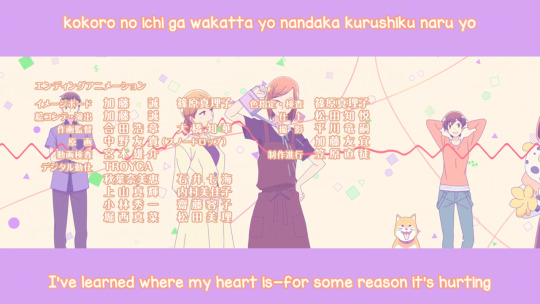
Bloom Into You’s most striking and noticeable feature is the incredible conservation of small movements that connect expressions naturally. Minute changes in characters’ faces are vital to observe the almost imperceptible changes in Yuu over the course of the series, and every aspect of the direction is in service of highlighting these subtle moments. In addition, repeated cinematic themes are reinforced over the show’s run, such as the use of light to impart a blinding realization, flower language to inform deeper personalities, even using a literal (not literal) cinema. Symbols such as trains, masks, and mirrors are used constantly and consistently to reinforce the show’s themes, which should be immediately obvious from the opening animation. I’m still kind of stunned that Bloom Into You’s ending theme is such a banger and managed to use an oscillating sine curve in a metaphorical way. These details might be lost without the brilliant layouts, intentionally resembling a stage, which always push the minute differences front and center. As an anime adaptation, Bloom Into You adds so much value in such a subdued, conservative way that it puts uninspired adaptations to shame.

#8
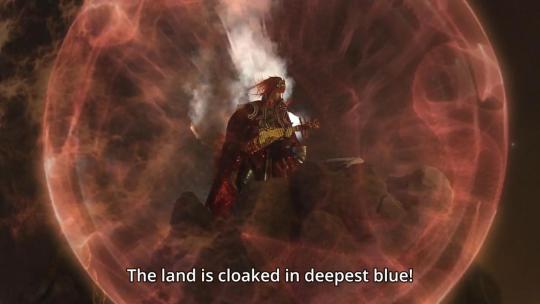
Thunderbolt Fantasy 2 rounded out the year with a good old new-fashioned Japanese-speaking Chinese-Wuxia Taiwanese puppet show. The novelty of this wild series, like, existing at all, is still incredible to me, but I was really wowed by the new characters and the direction the series went in after the already high standards of the first season. Following the outrageous action and fights of the previous season, I did not expect that season 2’s introductory goon would 1. Live past the first episode 2. So quickly become my favorite swordfighter and 3. Have inarguably the most complete character arc of the entire show thus far. The Princess of Cruelty’s struggle against her inner and outer demons in a unreasonably stacked, desperate situation developed her into easily the most compelling character of the season, and the rest of the cast including a corrupt police officer with extremely disconcerting and bad puppet teeth, a ventriloquist rock-lutist, and a nihilist monk each bring their own unique flavors to the table. The table that they throw the puppets in the air from to make the show. All of the new elements of Thunderbolt Fantasy 2 improved an already strong formula even more, and revealed an emotional depth to the series that I’m excited to see developed further. Some people might not call this anime, but those people haven’t seen Thunderbolt Fantasy for longer than 2 seconds. It’s so anime.
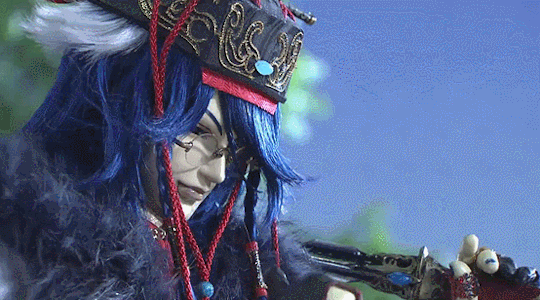
#9
I blasted all available seasons of Star vs the Forces of Evil early in 2018, and it was basically my first foray into straight-up American cartoon magical girl, despite watching all the Japanese ones, which was probably an oversight on my part. That’s because Star Versus is really good, and provided a flavor of magical girl I had been missing out on. I could talk about the excellent sparkle witch aesthetic of the show, fluid animation, and hilarious comedy, but I’d rather spend this blogspace posting Star Butterfly faces.

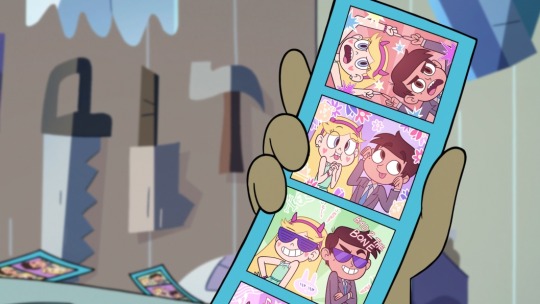
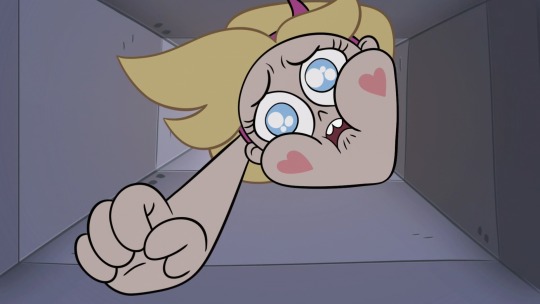
#10
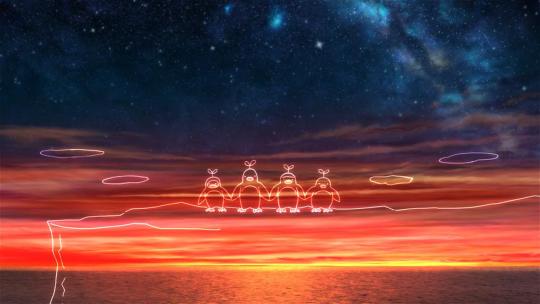
A Place Further Than the Universe, or YoriMoi, or my preferred moniker That Antartica Anime, wasn’t on my radar until well after it had finished airing, but it stuck with me for most of the year. Although it’s definitely melodramatic at times, it utilizes this tendency in exactly the right way to enhance the individual characters’ emotional arcs. Even though I was personally sort of taken out of it for many of the girls’ personal trials, :penguin emoji: is obviously thoughtfully written and carefully constructed, and especially knows how to orchestrate an immense emotional reaction with pitch-perfect timing. If there’s one particular aspect this anime has absolute mastery over, it’s hitting that perfect note and cue to create a memorable narrative climax. And for all my bellyaching about not fully relating to some of the characters, Miyake is definitively the #1 qb-relatable character of the year.
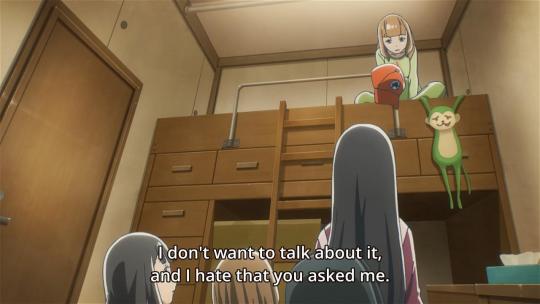
Here’s the rest of my list. Don’t @ me about it because if its not on my top ten then it doesnt really count anymore i dont make the rules thats just how it is
11. Yuru Camp
12. Hisone and Masotan
13. Asagao to Kase-san
14. Devilman Crybaby
15. After the Rain
16. Planet With
- friend of the show @queuebae on twitter
That’s why the 2018 anime of the year award goes to Kaiju Girls 2.
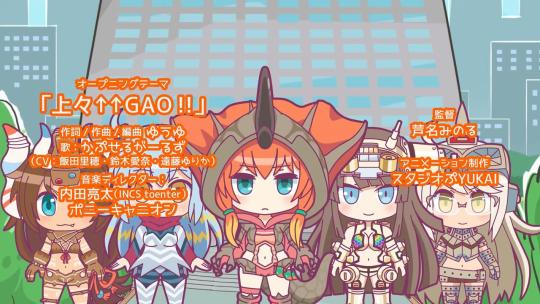
#top ten anime 2018#top ten pop team epics#pop teen epic#pop team epic#hoshiiro girldrop#poppiteppikiu#popttippiku#bob team epic#bob epic team#PTE 2018#Pop Team Epic Season 2
10 notes
·
View notes
Text
Character arcs!
Connor: Connor’s character development is about him coming to terms with himself. By the very nature of his existence, he has no confidence or self importance or pride. His perfectionism is through the roof and he never thinks he will amount to anything. What’s worse is that he was created to be this way. He was created to be Imagination, without the arrogance.
Connor originally starts off the comic being in a catatonic state. The first time we see him ‘awake’ is when Cara splits down into Cassidy and Connor for the first time since they escaped the facility (in chapter 2). Here he looks happy and confident and brimming with ideas. This is a facade that he developed with Cassidy’s assistance to try and appear more outgoing and fun to the group. Their situation wasn’t looking up and gazing down the prospect of living in the imagination forever, Connor and Cassidy decided the group may as well have two goofballs rather than Cassidy’s outwardly friendly and badass nature with Connor’s naturally sad and anxious one. Who knows what would have happened if they had chosen to be truthful. (Maybe that’s an idea for an AU..)
As Connor gets to know the group he starts to let his armour crack a little. The first major crack came when Cara was helping Vivian overcome his dysphoria and finally adopt the label of trans. Connor could see the pain and anxiety Vivian was experiencing and could relate it to himself. This lead to him truly trying to help Vivian. And seeing Vivian succeed and grow as a result of his actions only further intensified his feelings of being himself. By the end of Chapter 2, Connor has changed from using a false confident persona to hide his self doubt to accepting it at least on the surface level. He still acts confident but in the gaze of a more ‘fake it till you make it’ kind of way rather than ‘conceal don’t feel’. Eventually as Connor spends more time with Vivian and Lucas (late into chapter 3) he rejects his confident persona altogether, rather just trying to be himself. He is certainly a lot more confident and happy than he was back at the start of chapter 2, although he does have a lot more growing to do. Connor’s self worth is very heavily tied to his boyfriends and friends and when those start to crack, even if it was just in Connor’s head, he starts to doubt himself. Eventually, nearing the very end of chapter 4, Connor’s confidence goes out the window as his friends and boyfriends suddenly stop hanging out with him as much. In reality, Connor was accidentally sending them the wrong information that made them think that he wanted alone time. Thinking that shadow was the only one who he could talk to, we would spend more and more time with him. While shadow did help, he wasn’t enough as Connor’s actions pushed his friends and family further away. Connor’s mental state deteriorated to the point where he outright asks for shadow to take the pain away (I.e. possess him) thinking it would be better for his friends if he was someone else. But because of the nature of his soul (only being half a soul) he cannot fully relinquish control, and we finally reach the climax of Connor’s character arc, his breakdown. Connor glitches out with shadow’s corrupted code and his form becomes unstable and volatile. Even though he cannot shapeshift, his form changes in line with his emotional state, glitching out to all hell and turning him into an enormous fuck you dragon that starts destroying the island. The fragments decide that the best course of action is to take Connor out (just to get him to differentiate himself because they know that if Connor differentiates his form then shadow and Connor will separate and they they will be able to hash things out. Yes we get a dragon fight. Yes I want it to be awesome. When Connor is defeated it takes a few weeks for him to reform. When he does, he is immediately swarmed by his friends who explain the situation of what happened to him and how they aren’t mad or unhappy with him and just the whole situation get’s resolved. Connor starts to get better with all the attention he’s getting from his friends and eventually even starts to gain his own, non-artificial confidence. We start chapter 5 on a high note, with Connor in a much healthier place mentally and with his magic flourishing, just in time for him to act as the main mentor for his human protege.
Jackson/shadow: Most of shadow’s plot stuff can be found in the previous post but perhaps not his motivations. Shadow’s level of consciousness depends on how much magic he is exposed to. He doesn’t have a role to play until around the end of chapter 3 where, at first his motivation is to get stronger, and later his motivation is to be noticed by the group. When he succeeds in this, and Cecil goes hunting for him, he plays a game of cat and mouse until Cecil finally has him cornered (literally) with seemingly no way out. As shadow thinks of his situation more as a game, he refuses to accept defeat and rather in one last effort to ‘win’ he possesses Cecil. From here, his personality becomes more and more childish. He treats possessing Cecil like a game of pretend. He’s trying not to get caught because when he does, it’s game over. This lasts for a while until the real Cecil comes to confront him. Here he maintains his childlike demeanour, and rather challenges Cecil to get his body back. He sets the terms of the challenge as such: ‘I’m going to keep pretending to be you, until you convince enough of the others to, what’s the word you use, dissipate me? Then I will gladly give you your body back. But good luck trying to convince your friends when they can’t even see you.’ Eventually shadow does lose, and not only that, he his banished back into the generator. This is one of shadow’s lowest points. He tries to get the attention of the fragments by messing with their electronics but now they know what he wants, they refuse to play along. Shadow is just left alone to wallow in his own self pity. Occasionally either Cecil or Lucas will go in to perform maintenance on the generator, but now they will never engage with shadow. Instead they will fix it then leave, always being escorted by either Mika or Connor. Shadow would have stayed isolated if it wasn’t for Mika. One day, when nobody was around to stop them, they stole one of Cecil’s communicators and placed it down on the ground for shadow to speak into.
The conversation starts off hesitantly, as Mika doesn’t know if shadow can even talk through this thing, but once he gives shadow the instructions on how to work it, their conversation takes off. Mika goes back to the cave with the communicator every so often to check up on shadow. With the interaction, slowly shadow’s English gets better and he becomes more civil and less edgy and childish. While Mika cannot see shadow, they do know of his presence through the various devices at their disposal. Eventually Mika lets other people know of their secret conversations with shadow. While their skeptical at first, eventually most of them come around. Skylar was the first one they showed it to. Then from Skylar came Kim and Cassidy. Mika was hesitant to tell Lucas and his boyfriends but he eventually plucked up the courage to tell them. Lucas said that he knew, he always kept tabs on his devices and found it quite suspicious when he noticed which ones were missing suddenly and easily put two and two together. He was happy for shadow to be welcomed into the group, even if he didn’t fully trust him. Vivian was not on board, and neither was Connor, but eventually they calmed down enough to see shadow as more of a friend than a rival. Because they could not see him however, shadow found it easier to just stay in the cave. He did try coming out to join in with some of the group’s activities, except he could never join in fully and was often accidentally ignored. At one point, he assisted Lucas with the nature of his existence, along with being able to provide some more lore details that Lucas hadn’t been able to gather from his trip to the laboratory.
But as the group progressed, sometimes they would just forget about shadow. Not thinking to go down to the cave to see how he was doing. At this point shadow dreams of having a physical form but doesn’t tell anyone because he doesn’t want to burden them. (You know, I think I may change something about his role. I think that with extreme exposure, characters may start to glitch. I like that, ima keep that idea.) It was only when Connor was at his lowest that shadow would finally be visited again. Shadow liked to help Connor, but he wasn’t very good at it. He was also kinda nefarious in his motivations, trying to keep Connor away from his friends so he would come and talk to shadow. Eventually he started to feel bad as Connor’s situation worsened, eventually pleading to Connor to go get help, but with Connor refusing him and saying that they would never understand. When Connor offered for shadow to possess him, he had to think about it. On one hand, he desperately wanted a physical body and Connor desperately wanted to be able to just stop existing for a while. On the other hand, Connor needed help, and shadow possessing Connor’s body was not going to give him that help. If anything, Connor was pleading with shadow to possess him. (I may even go as far as to make it that Connor threatened to ‘take a wander in the imagination’ or to differentiate himself a few too many times if shadow didn’t possess him) So shadow did. You already read what happened with that whole situation above, but shadow was spending the entire time trying to calm Connor down, but failing. His voice of reason being pushed to the back of Connor’s mind from the sheer number of negative thoughts (yeah, Connor’s very angsty).
Eventually Connor gets differentiated and shadow goes back to the waiting void. Connor explains how shadow wasn’t the reason for his transformation. It was all him, and pleads for his friends not to demonise shadow. They agree and say that they weren’t planning on it anyway. Shadow had told them after the incident what was happening, and they just needed Connor’s confirmation. (I think ima go back and change another something with Connor’s pleading. Earlier on in their interactions, shadow would have actually told Connor that he was desperate for a physical form, and that sparks the whole possess me bit) Connor expresses shadow’s desire to have a physical form and so Lucas gets to work on it. Until then, shadow gets a temporary form of a hologram that will display a humanoid shape that would act as his stand in for events until they could find out why he couldn’t form and get it all working so he could. He also starts working on getting a name at this point. The group hang out more, Jackson as he is now called is involved in the group games and activities, spending time with his friends. While he couldn’t interact with any objects yet, at least it was like the group could see him. It felt better. It was actually during one of those game nights where Logan finally figured out a method to give Jackson a physical form. The game night was abandoned pretty quickly after the realisation so Logan could go and work on the idea. It took maybe a week or so, but finally the machine was complete.
Jackson’s form was corrupted. Because he was made of pure magic when he first formed he did not have the ability to form into a human shape. This was due to the fact that he didn’t have a defined soul. The fragments had all received time to refine their souls after they had been ‘extracted’ and were given time to form. Jackson was not given these conditions, and yet he had still managed to refine his soul. It just wasn’t physical. If they could give him a vessel to inhabit, an empty one, then they would be able to integrate him into this new data and he would become physical. Finally being able to put the raw magic that had put them all into this situation in the first place to good use, Jackson’s void soul was made in the shape he desired, the preparations had been made, and with a solid two minutes of high voltage raw magic being pumped into the machine, and with the void suddenly sporting a vibrant orange hue, the group commended their final test. (Another thing here, the experiment will 100% have been volatile. I want there to be suspense here obviously, so yes there will have been a chance for it to have not worked. Just as there was also a chance for Jackson to have died, but also, why would I kill off such a fun character. Come on.) The group fired up the communicator and listened for their conformational words.
‘Jackson, are you there?’ Lucas asked.
There was radio silence for a good few panels before a voice came through the communicator, Jackson’s voice. Speaking for the first time.
‘I’m here.’ He said
The group would go manic as they knew the procedure had worked. Of course it would take a few days for his soul to fully integrate enough to form, but the first steps were done.
The next time we would see Jackson would be when he forms. Lucas would be in his lab, just tinkering on a project with a coffee when he sees a bright orange light emanating from Jackson’s soul. Recognising what this meant, he immediately called everyone in to the lab. Once everyone was assembled, they waited with baited breath as Lucas removed Jackson’s soul from the stasis chamber. And suddenly in a burst of white light (which obviously I will drag out onto several panels because drama) Jackson was standing there before the fragments, fully physical. He looked down at his hands, and moved his feet, feeling the ground and the air particles. Then he started to cry tears of joy and everyone goes over to hug him because gosh darn it this scene. ;w;
As for Jackson’s personality, he’s an outgoing extrovert. He gets along the best with Kim, Mika, Connor and the human researchers when he meets them in chapter 5. He loves anime and food and magic use and thrills like the zip line. He does stay on the island most of the time but in the epilogue, he will basically be adopted into the researcher’s friend group.
Jackson is also simultaneously the youngest and the oldest fragment. Which I just find funny.
Okay, that’s already a lot of text and I feel burnt out. I’ll have to work on the other 6 later
0 notes
Text
So it comes to an end
You know I often hear pieces like Make it Right the series being referred to as productions made by and for fangirls who wanna fetishize male-male love relationships. It’s often because you have these young hot guys together, in these stories that are thought to be shallow. And on top of it you have the fandom success of young girls who claim to be obsessed with these relationships and the fan-service that is often done for these productions. These are excuses people allow themselves to use to tear down or ignore the work that’s being done. I look at productions in America, that’s where I live, and I find that there are many people getting praise for things that aren’t actually praise worthy. For things that aren’t actually good representation for the people in the community. I look at stories like Make it Right and I find it funny that someone could disregard this series because it did more in the terms of Bisexuality than I’ve seen for 5-10 years. Just by actually having bi characters and understanding what that really means without no backhanded phobia that leaked in. The story is not just about male-male relationships. Within these perimeters these young men were finding themselves, learning how to love and be loved and love themselves.
My favorite relationship out of the show has always been Frame and Book, because I think their story was honest and necessary, taking that journey with them felt real.
The writer nor the director went into this with shallow intentions. It was very clear early on that they had a story and they wanted it to progress as it should. There was no love at first sight with this couple, no magical love makes everything disappear conundrum. Yes you get the feeling that secret feelings were under the surface, but no grand schemes. These were two people who had been around each other but weren’t exactly friends because they were on total different ends of the personality spectrum. Book, like his name, was very bookish. He’s a loner and an introvert. And although we find out why latter, he intentionally set himself apart from others. Frame, on the other hand, is very outgoing, very friendly and popular. He’s very extroverted and intentionally puts himself out there def sexually. We find out why he extends himself sexually later in the show, but one thing I really love is they didnt shame his sexualization. It’s not at all about shining bad light on sex, from the sex female worker to him. In fact his sex drive remains high after they get into a relationship. They never use him as the bad boy…they didn’t write him as the playboy who was a dick. He was a guy who had been emotionally hurt in a relationship and this led him to not wanting to enter that kind of pain again so his mindset was sex, not relationship, simple as that. He didn’t use his past experience as an excuse to treat others like shit. He didn’t toss away bed partners like they were trash. Or look down on others. In fact, Frame is one of the most genuine, caring, emotionally honest characters in the series. It’s this caring nature that helps him obtain the love of his life.
Back to the beginning: Frame said to Book in the first season, “If you are a star, you are a star that was beautiful when I looked from afar. But when I look closer, the more beautiful you are.” This line was only great because despite the cheesy structure, the scene does not come off as false at all. They did an amazing job of fitting it into the perimeters of them and making it work. Not only that, but, this line is one of the ones that I find fits their relationship so well. Def from the position of Frame to Book. Like I said you get these undercurrent feelings in the start. Not love, more - if he was interested…I would totally go there - type of vibes. That impression where it’s like, this guy isn’t necessarily a friend but when he’s around, I find his nature cute and interesting. The moment he finds out Book is actually interested in male-male connects, all bets are quickly off the table and we def see him making these moves and these gestures to build that bond between them. On Books end there was def a crush that was in place before they even became friends. Like I said, Frame’s caring nature got him the guy before he ever really knew he was ‘the guy’. We see these flash back moments of before and you realize that Frame has always been nice to Book, his niceness wasn’t served to get anything back. He would exhibit random acts of helping Book, or trying to include him into the group. Naturally these things moved Book, but because of his own past, because of his need to isolate himself and lock that part of him away, Book would have never crossed that line or made those interest known. Which is why their relationship happened as it did.
I’m a goner for consistency and not fucking up character. Luckily they did not mess up either for my babes when part 2 rolled around. I said I love FrameBook for its honesty, and I do. We leave part one with them being open about what wanting to be together and what that meant. But I also loved them for their internal struggles and hope those struggles sometimes top our honesty levels. We often want our partners to look at us a certain way, so we keep hidden things that we find shame in, things we want to forget. But when those thing still have power over us they find ways to slither back in our lives and prove themselves very present, and this was a problem Book had in season 2. His past relationships and the bad fallout that took place left him deeply scared with trust issues. Trust issues that invaded his relationship. When we’re reintroduced to Book he’s happy, he’s been isolating himself less, he’s on the path to being sexually free and accepting. However, he still exhibits signs that show all is not good. He still an extreme workaholic for some reason. He’s still showing signs that he doesn’t fully trust his partner even though Frame has never done anything to harm him or ever present something to the world that he wasn’t comfortable with. It’s so strong, so powerful it knocks him out of his happiness, out of his moment of bliss, it rides his shoulder and whispers temptations of damnation in his ear. It doesn’t matter that Frame doesn’t deserve the lack of chance, that’s not how trust issues work and the show intentionally showed that. They highlighted the good moments of their relationship and showed the comparison of his prior relationship. This is because that’s how trust issues work, it ask that deep question of ‘didn’t I love and wasn’t I loved before I was betrayed and everything shattered.’ He did and he was and trust issues remind him that betrayal still happened.
Book had not only been betrayed in case of his lover but from the two people that was supposed to love him when the rest of the world turned its back, his parents. These people were honestly so disgusting. To stand in front of this young man and argue over who has to ‘deal with him’ after they’d already isolated him to his own livings and given him a set of rigorous rules that he would have to excel at or be out altogether. He was dealing with depression and his parents didn’t help at all. He would reach out to them and they would show no interest, ignore him or use the communication to force more stress onto the button of his emotions. His parents were one of his triggers to be honest, you def see this in that big moment, where he’s thinking and you just see all these things that have damaged him, and have been just unhealthy for him altogether. A big part of the reason he distanced himself from Frame was out shame. Most people don’t want their current lover to see them that way, and when the video had been revealed the first time around the treatment he got from those around him stippled those thoughts of shame in his sexualization. He doesn’t want Frame to turn his back on him, doesn’t want him to look disgusted, or be disappointed. It’s easier turning your back on someone else than having them present you your grand fears. It wasn’t just the trust issues that led him to push away Frame, it was also his parents. Through isolating him in the first place, they coded within him this need to be alone when dealing with issues, this need to shut everyone and everything out and deal on his own. No one had ever been there to protect him, or stand beside him. Even with his need to be studious, while that is in part because of the demands of his parents it’s also because he knows he can’t forever rely on the finances of his parents – who use that as a way to threaten him. Book had to come to a place where he could face these issues head on, his parents were gonna love him or not love him. Learning to lean on someone, and trusting them to be there wholeheartedly. Standing up in the face of things he was ashamed of. Accepting his own sexual drive.
Frame seemed to match his name when it came to Book. He was a surrounding of love, care and patience. And it’s not to say he didn’t feel tested, that he wasn’t stretched to his limits. He was. His own fears were present in the reality of Books secrets coming to bite them in the ass. Being left behind, being cheated on or left for another. Frame was someone who was used for his looks and then to get passed that he allowed his looks to be the forefront of all his relations, never intending for it to get further than that with anyone. So of course his internal fear then becomes that his only worth his looks. Again it’s that thing on the shoulder whispering temptations of damnation. This time the question just becomes, ‘if I am loved for my attractiveness then doesn’t someone who is equally or more so attractive capable of taking from me the love I have obtained?’ And it’s also not about Book because Book has never cheated on him, nor has interest in anyone else, past or otherwise but that fear disregards that. Still, Frame remains loving and caring, even as he questions things. When we’re introduced to Frame this season he has moved in with Book. His grades have gotten better because he’s using his boyfriend as a free tutor. He’s extremely happy, and satisfied. His boyfriend has hit that glow up and he doesn’t know if he should look at him adoringly or with lust. He finds a nice balance of both. Frames unique mission has always been to take care of Book. He makes sure he eats when he forgets because of studying. He does these special things so he knows he’s loved. He stands beside him, with him, or for him. Tries to understand his depressive modes and his push back. Doesn’t criticize him, instead he tries to help him take those steps of getting back into himself and just being there. He wants Book to be happy, it’s as simple and as complex as that. He wants their future together, but he’s not naïve about it. He knows that because they are both men that this mean having to take certain steps, to have a certain determined nature, to be prepared for the battles that are promised to come your way.
They were good for one another, I mean yes they were flawed, but it made it that much more real. Sometimes people hurt us and that pain is sometimes so powerful that we retain it. We take it with us into our next relationship and this is always a damaging thing. Love is being courageous enough to face those internal wars within ourselves, not just for the other person but for the love of ourselves. The story of Frame and Book is a beautiful one, from the moment of discovering like of one another, to the sticky messiness of it all and deciding they want it enough to fight for it. Having those frank conversations. Just being loved, really loving someone and understanding what that’s worth.
undefined
youtube
I say this a lot, but it’s because I really mean it – Ohm and Toey really did a good job with and for these characters. They took it seriously. For Ohm to be so young when they started this project, I am extremely proud of him because he does such a good job with this craft. He was meant to act. He’s a great model, has nice screen presence, he’s very charismatic with the audience. I hope he really tones his skills, and takes classes to further his gift because I think he can take it very far. Toey’s just one of those people that just slides into the character like he’s actually the real person. It’s not even like he’s acting. You forget that the character is a character because it seems like him. I really appreciate these two for being serious about their part, I’m always for being trying even when there are flaws because trying means you’re capable of developing of growing. I hope they remain as close as they have been. I would love to see them work together again, no matter the circumstances. I know gay is normally a way to enter the acting world and most actors never do a second production, but I wouldn’t mind see them again in anything. This has been a journey, I’ve been here since day one and it was something. I have to thank Toey and Ohm for playing the roles, the writer for creating the characters, the director for bringing the story to life, those who spent hard time subbing episodes – you guys are the crème del crème because without you my ass couldn’t understand the story. Last but not least, to video makers because videos of my ships help me love them more – I always find highlights of scenes and see them differently, or in a way that just hits home – and I love that. It was a great fandom - no bitterness. I’m gonna miss everyone.

#make it right the series#make it right 2#framebook#frame and book#toey sittiwat#ohmtoey#ship awareness#my ships#got permission to use vid#ohm pawat
211 notes
·
View notes
Text
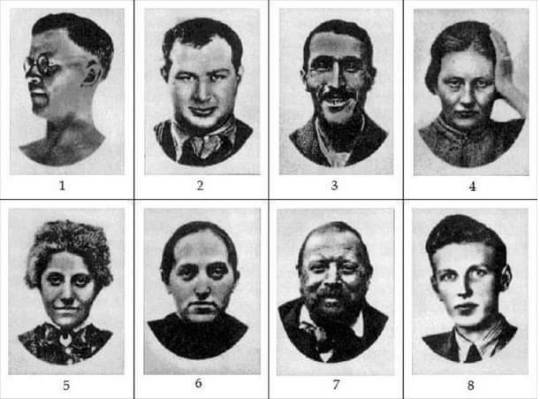
The Following is a psychoanalytical test called the Szondi Test. This test was made by a Hungarian Psychoanalyst, Léopold Szondi.
The following are 8 pictures.
Now, look at them and study them closely.
Which of these 8 do you find the most 'scary'?
Really, really try to picture them in a dark alley, coming towards you. Or, who would you want the LEAST to be in an elevator with you? Overall, who gives you the creepiest vibes, or makes you feel disgusted and repulsed among these 8.
Remember your answer.
These are all pictures of patients of Szondi, all of which whom suffered different conditions. Szondi believed that who you pick will tell something about your personality. But not just anything about your personality. The part of you that you suppress or at least deny about yourself. maybe you pushed these feelings and desires down into your subconscious mind or maybe something you refused to accept about yourself. and act in opposition towards them.
It's important to note that, whatever results you do come with, doesn't mean you have a mental condition. It's just that, you potentially have something deep within you that you compensate for.
Most people find the results rather accurate, though. Take them with a grain of salt.
The format is.
(Number). -condition name-
( General Info )
---
Repression: What it is you're hiding.
Denies it by: Actions, personalities or habits you do to 'counteract' or push back against what you're repressing.
Sublimination: What you show, ever so slightly in your life regarding the repression.
_______________________________
1. The Sadist.
You were most likely dominated by a lot of authoritarian figures, such as parents or teachers. So you repress the feeling to dominate others, as you've been through your formative years.
You are passive and rather friendly and love to make people happy.
That being said, you react defensively in a passive-aggressive manner when you feel someone is trying to dominate you. This is your way of indirectly punishing them.
But deep inside, you love to see the suffering of other people, physically or emotionally. Though, consciously you do your best to ignore these thoughts whenever they surface.
---
Repression: The Desire To Dominate Others.
Denies it by: Developing a peaceful and harmless personality. Always helping others.
Sublimination: Creates barriers when they don't want to do something. ( Such as getting to work late) When acting defensively, acts passive-aggressively.
_________________________________
2. The Epileptic.
You react to motions rather intensely, good or bad. Since you were taught as a child that doing certain things aren't okay, you refuse to let negative emotions such as anger, impulsiveness or irritability manifest.
As such, you probably wear a strong emotional mask and are good at hiding the negative feelings from others whenever they bubble up under the surface.
You compensate by acting meek and friendly. And people probably see you as peaceful and reliable. Although, under pressure. You can explode with these negative feelings and most people are surprised, as you never seemed the person to be so negative.
Repression: Feelings of anger, irritability, and aggression.
Denies it by: Becoming a meek and friendly person, and giving off the impression of responsibility.
Sublimination: Rare outbursts when stressed or provoked.
_______________________________
3. The Catatonic
You're most likely an intelligent person with an overactive mind. Not so bad, right? Well, here's the trade-off. In the attempt to stay in reality and fight your overactive brain, you've most likely become dutiful, inhibited and rule-driven. You are unaware of the physical and emotional needs of yourself and others. and often feel disconnected and lost.
Repression: Mental hyperactivity/ overactive imagination
Denies it by: Adopting "stereotypical" behaviors.
Sublimination: Often acts defensively and likes to follow their own set of determined rules.
___________________
4. The Schizophrenic
If you've chosen this woman, then you're most likely repressing apathy for others. Probably struggle in connecting with others. And relating to others is a challenge for you. Maybe even relating to yourself. Your relationships probably lack depth.
To compensate, you're sociable. Love to spend time with friends and family. In a sense, this is a way to mask your sense of loneliness and isolation.
Repression: Feelings of apathy towards others.
Denies it by: Being a very sociable person, with a large circle of friends.
Sublimination: Does not talk about feelings of isolation, or their lack of true affection for others.
______________________
5. The Hysteric.
You're probably repressing attention-seeking tendencies. You were told as a child to not show off, by adults or peers. As such, you're probably a modest and sincere person. Deep down you love to be the center of attention and charming others. Though you're rarely the center of attention, when you are, you're ecstatic You're likely someone who pays attention to detail. As evidence of the amount of effort, you put into your appearance. This could be your subconscious self showing off, as your conscious self continues to act modestly.
Repression: Desire for attention and admiration.
Denies it by: Acting modestly / staying out of the spotlight.
Sublimination: Chooses rare or extravagant jobs and hobbies. Usually tries to remain elegant and well-dressed so that they still draw attention.
_______________________
6. The Depressive.
On the surface, you're happy and bubbly. Like you don't have a care in the world. Well, that's the side you show to the world, at least. Deep within, you're most likely dealing with feelings of self-worthlessness, even self-loathing and guilt. You probably take your mind off this by focusing on work and other people. Low self-esteem is also associated with this choice.
Picking this picture doesn't mean you're a depressed person, but that you have a predeposition to negative emotions.
Repression: Feelings of worthlessness/inadequacy
Denies it by: Developing a happy and bubbly exterior personality. Focussing on work and friends.
Sublimination: Assumes the role of everyone's "psychologist", searching for solutions to other people's problems.
_____________________________
7. The Maniac.
You're most likely logical, mature and balanced. You don't favor chaos or excessive displays of emotions. You're likely annoyed when people are loud, or when they hold too strong of belief. Because inside. You're repressing hyperactive tendencies that would make you lose control. Deep within, you're probably quite impulsive and with extreme energy hurdles. This is probably because your parents or teachers tried to make you "calm down" as a child.
Repression: Impulsiveness and high energy levels.
Denies it by: Being logical, reasonable and collected, and developing a hatred of excesses.
Sublimination: Avoids places of temptation, such as casinos.
________________________
8.Dissociative Identity Disorder.
As a child, you've probably been bullied, defamed, or traumatized by a parent, teacher or other family member. This trauma has made you subconsciously make you question yourself as a sexual partner. Now, you probably push your own gender role. Such as being macho, as a man. Or pushing your feminity as a woman. You probably put down others of your own sex for not acting manly or womanly enough.
Repression: Thoughts of being an undesirable partner.
Denies it by: Emphasising gender role, acting very macho or feminine.
Sublimination: Sacrifices individuality and real interests to conform to expected male/female stereotype
_________________________
Being an old psychoanalytic test, don't expect things to be 100% accurate. Was it accurate for you? And as always, take it with a grain of salt.
0 notes
Text
Enneagram 2
THE TWO IN PROFILE
Healthy: Empathetic, compassionate, feeling with and for others. Caring and concerned about their needs. Outgoing and passionate, they offer friendship and kindness. Thoughtful, warm-hearted, forgiving, and sincere. / Encouraging and appreciative, able to see the good in others. Dedicated and supportive of people, bringing out the best in them. Service is important: they are nurturing, generous, and giving—truly loving people. At Their Best: Deeply unselfish, humble, and altruistic, giving unconditional love to self and others. Feel it is a privilege to be in others’ lives. Radiantly joyful and gracious.
Average: Engage in “people pleasing” in order to be closer to others, becoming overly friendly, emotionally demonstrative, and full of “good intentions.” Bestow seductive attention on others: approval, “strokes,” flattery. Talkative, especially about love and their relationships. / Become overly intimate and intrusive: they need to be needed, so they hover, meddle, and control in the name of love. Want others to depend on them: give, but expect a return. Send mixed messages. Enveloping and possessive: the self-sacrificial, parenting persons who cannot do enough for others, wearing themselves out for everyone, creating needs for themselves to fulfill. / Increasingly self-important and self-satisfied, feel they are indispensable, although they overrate their efforts in others’ behalf. Seek specific forms of repayment for their help. Hypochondria, becoming a “martyr” for others. Overbearing, patronizing, presumptuous.
Unhealthy: Manipulative and self-serving, instilling guilt by making others feel indebted to them. Abuse food and medications to “stuff feelings” and get sympathy. Undermine people by making belittling, disparaging remarks. Extremely self-deceptive about their motives and how selfish and/or aggressive their behavior is. / Domineering and coercive: feel entitled to get anything they want from others and are bitterly resentful and angry. Somatization of their aggressions results in chronic health problems as they vindicate themselves by “falling apart” and burdening others.
Key Motivations: Want to be loved, to express their feelings for others, to be needed and appreciated, to get others to respond to them, to vindicate their claims about themselves.
Examples: Mother Teresa, Archbishop Desmond Tutu, Eleanor Roosevelt, Barbara Bush, Robert Fulghum, Leo Buscaglia, Luciano Pavarotti, Barry Manilow, Richard Simmons, Sammy Davis, Jr., Pat Boone, Doug Henning, Ann Landers, Florence Nightingale, “Melanie Hamilton Wilkes” in Gone with the Wind, the “Tin Woodsman” in The Wizard of Oz, and the “Jewish Mother” stereotype.
AN OVERVIEW OF THE TWO
Because it has so many facets, love is difficult to define. It means different things to different people in different kinds of relationships. The word can be used to cover a multitude of virtues as well as vices. Of all the personality types, Twos think of love in terms of having positive feelings for others, of taking care of others, and of self-sacrifice. Twos may also see love in terms of intimacy and achieving closeness with others. These aspects of love are undoubtedly important parts of the picture. But what Twos do not always remember is that, at its highest, love is more closely aligned with realism than with feelings. Genuine love wants what is best for the other, even if it means risking the relationship. Love wants the beloved to become strong and independent, even if it means that the Two must withdraw from the other’s life. Real love is never used to obtain from others what they would not freely give. Love outlives a lack of response, selfishness, and mistakes, no matter who is at fault. And it cannot be taken back. If it can be, it is not love.
A central thing to understand about Twos is that although on the surface they seem to be offering love, on a deeper level they are really searching for it. Twos believe that if they love others enough, surely others will love them in return. Again and again, as we shall see, Twos extend themselves to others with affection, gifts, services, and many other things, but are often disappointed by the responses they receive. However, until Twos learn to properly love themselves, none of the responses they get, however loving, will make them feel loved.
Twos believe deeply in the power of love as the prime source of everything good in life, and in many ways they are right. But what some Twos call “love” and what is worthy of the name are very different things. In this personality type, we will see the widest possible meanings of love, from disinterested, genuine love, to the flattering effusions of “pleasers,” to desperately needy manipulation and the dangerous obsessions of the “stalker.” There is tremendous variety among those who march under the banner of love, from the most selfless angels to the most hate-filled devils. Understanding the personality type Two will help us understand how they got that way.
In the Feeling Triad
Although Twos have strong feelings for others, they have potential problems with their feelings. They tend to over-express how positive they feel about others, while ignoring their negative feelings altogether. They see themselves as loving, caring people, yet all too often they love others only to manipulate others to love them in return. Their “love” is not free: expectations of repayment are attached. Twos are often hampered in their ability to truly love others because their self-image is highly invested in having only certain positive feelings for people, and not having other “unpleasant” feelings.
Healthy Twos, however, are the most considerate and genuinely loving of all the personality types. Because they have strong feelings and sincerely care about others, they go out of their way to help people, doing real good and serving real needs. But if they become unhealthy, Twos deceive themselves about the presence and extent of their own emotional needs as well as their aggressive feelings, not recognizing how manipulative and domineering they can be. As we shall see, unhealthy Twos are among the most difficult of the personality types to deal with because they are extremely selfish in the name of utter selflessness. They can do terrible harm to others while believing that they are completely good.
The essence of the problem is that even average Twos have difficulty seeing themselves as they really are, as persons of mixed motives, conflicting feelings, and personal needs which they want to fulfill. This is because their superegos tell them that if they pursue what they want directly, they are being selfish and will be punished. Thus, Twos must convince themselves that they have no needs, and that what they do for others is without self-interest. They must see themselves only in positive terms, laying the groundwork for self-deception. What is difficult to understand about less healthy Twos is how they can deceive themselves so thoroughly; what is difficult to deal with in them is the indirect way in which they go about getting their needs fulfilled. The more unhealthy they get, the more difficult it is for others to square their perceptions of them with the Twos’ increasingly virtuous perception of themselves. They constantly exonerate themselves and demand that others do the same—indeed, they demand that people accept their interpretation of their actions, sometimes even when that is contrary to the plain facts.
Twos correspond to the extroverted feeling type in Jung’s typology. Unfortunately, it is not one of his most insightful descriptions; nevertheless, the following characteristics are worth noting.
Depending on the degree of dissociation between the ego and the momentary state of feeling, signs of self-disunity will become clearly apparent, because the originally compensatory attitude of the unconscious has turned into open opposition. This shows itself first of all in extravagant displays of feeling, gushing talk, loud expostulations, etc., which ring hollow: “The lady doth protest too much.” It is at once apparent that some kind of resistance is being over-compensated, and one begins to wonder whether these demonstrations might not turn out quite different. And a little later they do. Only a very slight alteration in the situation is needed to call forth at once just the opposite pronouncement on the selfsame object.
(C. G. Jung, Psychological Types, 357–358.)
What Jung describes is the ambivalence of the Two’s feelings—the ability to shift from apparently totally positive feelings for others to highly negative ones. As we trace the deterioration of the Two along the Levels of Development, we can see that healthy Twos really do love others genuinely. But average Twos have mixed feelings: their love is nowhere near as pure or selfless as they want it to be. And in unhealthy Twos, the opposite of love is operative: hatred finds fuel in burning resentments against others. Jung is not correct in saying that “only a very slight alteration in the situation is needed to call forth at once just the opposite pronouncement on the selfsame object,” since hatred is at the other end of the spectrum from genuine love. But what is true is that step by step, as Twos deteriorate along the Levels toward neurosis, this is precisely what happens.
Problems with Hostility and Identity
Twos, Threes, and Fours have a common problem with hostility, although they manifest it in different ways. Twos deny that they have any hostile feelings whatsoever, concealing their aggressions not only from others, but also from themselves. Like everyone else, Twos have aggressive feelings, but they protect themselves from realizing their existence and extent because their self-image prohibits them from being openly hostile. They act aggressively only if they can convince themselves that their aggressions are for someone else’s good, never for their own self-interest. Average to unhealthy Twos fear that if they were ever openly selfish or aggressive, not only would their negative behavior contradict their virtuous self-image, it would drive others away from them. They therefore deny to themselves (and to others) that they have any selfish or aggressive motives whatsoever, while interpreting their actual behavior in a way which allows them to see themselves in a positive light. They eventually become so practiced at this that they completely deceive themselves about the contradiction between their expressed motives and their real behavior. Unhealthy Twos become capable of acting both very selfishly and very aggressively, while, in their minds, they are neither selfish nor aggressive.
The source of their motivation is the need to be loved. However, Twos are always in danger of allowing their desire to be loved to deteriorate into the desire to control others. By gradually making others dependent on them, average Twos inevitably arouse resentments against themselves while demanding that others confirm how virtuous they are. When interpersonal conflicts arise, as they inevitably do because of their attempts to control others, average to unhealthy Twos always feel “more sinned against than sinning.” They see themselves as martyrs who have sacrificed themselves selflessly without being appreciated for it in the least. Their re-pressed aggressive feelings and resentments eventually manifest themselves in severe psychosomatic complaints and physical illnesses which force others to take care of them.
Gaining the love of others is important to Twos because they fear that they are not loved for themselves alone. They feel that they will be loved only if they can earn love by always being good and by constantly sacrificing themselves for others. In a word, they fear that others would not love them unless they made others love them. (Twos could be briefly characterized as persons who, fearing that they are unlovable, spend their lives trying to make people love them.) Naturally, that creates a deep source of hidden aggression, and if people do not respond to them as they want, average to unhealthy Twos become increasingly resentful. But since they cannot consciously own up to their aggressive feelings, they express them indirectly, in manipulative behavior they disavow. It is astonishing to see how badly unhealthy Twos can treat others while justifying everything they do. But no matter how destructive their actions are, unhealthy Twos must persuade themselves that they have nothing but love and the purest of good intentions at heart.
One of the major ironies of all Twos is that, unless they are healthy, the focus of their attention is essentially on themselves, although they neither give this impression to others nor think of themselves as egocentric. Assertions to the contrary, even for average Twos the welfare of others is not primary. Rather, their positive feelings about themselves—as reinforced by the positive reactions of others—is what is important to them and what they are always angling for.
In a real way, Twos are dependent on the loving responses of others to validate their self-image—the good, selfless, loving person. The problem is that as long as Twos are focused on others to find indications of their own value and lovability, they fail to be fully aware of all of their own feelings and cannot recognize the lovable qualities within themselves. As Twos deteriorate, the situation worsens, because they also fail to recognize loving responses in others. Average to unhealthy Twos start looking for very specific signs of others’ affection for them, and any differing indications of love do not count. Thus, Twos must figure out what kind of person they need to be and what they will have to do in order to elicit from others the specific responses that “count” as love.
This is why Twos have a second problem in common with Threes and Fours—a problem with their identities. Other people do not see Twos as they really are, and, more important, Twos do not see themselves as they really are. There is an ever increasing disparity between the loving self-image and the actual needy person, between the claims of selfless generosity and the claims they make on the love of others.
In a real way, Twos have learned to reject themselves and their own legitimate needs, believing that the idealized self-image they have created—the selfless helper and friend—will be more acceptable than their own authentic feelings and responses. And because their identity is dependent upon others affirming and appreciating their goodness, Twos become trapped in behaviors that increasingly frustrate them and alienate others. For Twos to escape this trap, they need to recognize the degree to which they ignore their own needs as well as their grief and shame. They can then apply their extraordinary nurturing skills to someone who desperately needs them—themselves.
Parental Orientation
As children, Twos were ambivalent to the protective-figure, the person in their early development who was responsible for guidance, structure, and discipline. This is often the father, but other people can also play this role, including the mother or even an older sibling. Twos did not identify strongly with the protective-figure, but they also did not psychologically separate from the person entirely. As a result, Twos felt that they could best fit into the family system by creating an identity that was complementary to the protective-figure. Since the orientation is toward the protective-figure who represents the qualities associated with patriarchy— authority, structure, discipline, guiding the child in the ways of the world—the child began to identify with the complementary, matriarchal role. Young Twos learned to become “little nurturers” as a way of gaining safety and security in the family system. In other words, they believed that if they could nurture others in their family sufficiently, they could win the affection and protection of the protective-figure. This relationship with the protective-figure sets the stage for a similar orientation toward everyone who can give Twos the love they want.
This ambivalent orientation to their protective-figure helps explain why Twos’ self-esteem is conditional. Twos do not love themselves unconditionally, and this is really the source of all the suffering that Twos will experience or cause. Their self-esteem is based on the condition that they be absolutely good and “unselfish.” They must see themselves in this way because they believe that only by being extraordinarily good and generous people will they ever obtain love from others. Further, the more dysfunctional the Twos’ family systems were, the more they will feel that they must sacrifice and repress their own needs in order to get love.
Unfortunately, the more Twos see their own needs as selfish, the more they must find indirect ways of meeting them. Twos’ superegos are ever vigilant, judging not only the “selfishness” of the Two, but the responses of others to the Two’s help. (“That was a nice thing Brenda said, but if you were really a lovable person, she would have given you a hug.”) In average to unhealthy Twos, very little can satisfy the superego. The Two cannot be self-sacrificing enough, and no response from others is sufficient to make Twos believe that they are loved. Ironically, Twos try to maintain their psychological survival by trying even harder to convince themselves and others (as well as their punitive superegos) that they truly are being good, selfless, and without needs.
While there is certainly nothing objectionable about Twos seeing themselves as good and loving people when they are genuinely good, problems begin when they need to feel that they are good all the time. Even when they are far from good, Twos must see themselves as good for others. The irony is that their need to think of themselves as all-good and helpful is never more urgent than when they are frantically needy, self-centered, and manipulative.
However, when they are healthy, Twos are able to move beyond their desperate search for love by learning to nurture themselves. They understand that self-nurturance is not selfish: in fact, it is essential if they are going to be of any real help to anyone else. They know that to the degree that they can love themselves unconditionally, they do not have to get love from others by being good all the time. They can then be caring, unselfish, and disinterested, in the most positive meanings of those words, because their love is truly without agenda. Unfortunately, at the lower end of the personality continuum, the “love” of unhealthy Twos is nothing more than a veneer for the desire to create dependencies so that they can hold on to others. Because of the intensity of their neediness, unhealthy Twos do evil in the name of good and can no longer tell the difference.
ANALYZING THE HEALTHY TWO
Level 1: The Disinterested Altruist
At their best, healthy Twos are amazingly unselfish and altruistic, able to offer others a truly unconditional, continuing love with no strings attached. Their unconditional love allows Twos to love without concern for themselves and without necessarily being loved in return. “Getting a return” on their love is not what matters to them.
Truly unconditional love is both free and freeing: healthy Twos are free to love or not, and others are free to respond or not. Others are allowed to grow on their own terms, even if it means that they will grow away. Healthy Twos always remember that it is an immense privilege to be allowed to be a part of someone’s life, a gift others bestow on them, not something they can rightfully claim for themselves.
This is possible because at Level 1, Twos have learned to focus on their own real feelings and to truly nurture themselves. Healthy Twos are able to do good for themselves without feeling that they are being selfish or fearing that doing so will alienate people. By learning to love and nurture themselves, Twos no longer have to try to get love from others. They can honestly assess their own needs and deal with them and so can more objectively see and respond to the needs of the people in their lives. Sometimes they see that the best thing they can do is to do nothing. For very healthy Twos, giving is a choice, not a compulsion.
Very healthy Twos are as altruistic as human beings can be. They are unselfconscious about their goodness, not letting “their right hand know what their left hand is doing.” They have immense reservoirs of good will and are absolutely delighted at the good fortune of others. Their attitude is that good is to be done, no matter who does it or who gets the credit for it. Very healthy Twos are not angry if someone else takes credit for something they have done. Good was done, other people have benefited, and that is all that matters.
At their best, therefore, healthy Twos are completely disinterested in the truest sense of the word: they do not help others out of hidden self-interest, because they are directly attending to their own needs. Their intentions and actions are purely directed toward the good of the other, with no ulterior motives. Their disinterest allows Twos to see the real needs of others clearly, without ego or their own unmet needs clouding the picture. As a result, an extraordinary directness is possible in all their relationships, because ego and self-interest do not get in the way.
The paradox of very healthy Twos is that the more they learn to give to themselves, the more they enjoy giving to others. The more revered they are, the more humble they become. The more power people give them in their lives, the less they want. The less they look for love from others, the more others love them. Furthermore, virtue is not simply its own reward: the enduring reward of virtue is happiness. Very healthy Twos are happy to be good, and are filled with an outflowing joy. They are among the most radiant human beings one can hope to find in life—radiating the inexpressible happiness which comes from truly being good and doing good for others.
Few people rise to this level of sustained altruistic love, and those who do, do not advertise it. Those few who do come as close to being saints as anyone becomes, although they are too humble to think of themselves this way. They would be embarrassed by any suggestion that they are saints because, good as they are, they know perfectly well that their virtue does not truly belong to them. And besides, their sights are no longer on their own qualities. Even so, when they are at their best, very healthy Twos present us with an example of the heights which human nature can attain. They have been victorious in the never-ending battle to transcend the ego to make room for both the self and the other. They have truly learned to love.
Level 2: The Caring Person
Even if they do not live at this high peak of disinterested altruism all of the time, healthy Twos remain personally concerned for the welfare of others. Emotionally attuned to other people, they are the most empathetic of the personality types.
Empathy is the quality of being able to feel with another person, to experience his or her feelings as if they were your own. Empathy makes the feelings of others your feelings, their needs your needs. Being highly empathetic, healthy Twos are able to put themselves in the place of others, feeling compassion and concern. They have the strength to empathize with those who suffer. For example, when they hear about a disaster on television, their hearts go out to those who have been affected. The marital or job problems of their friends touch them deeply. Just knowing that someone else knows how you feel, that someone weeps with you, cares about you, takes your needs seriously, and will do all he or she can to help you, is itself a source of great comfort in times of trouble.
At this Level, Twos are extremely healthy, extraordinary people, but they have lost some of the freedom they experienced at Level 1. This is because Twos have begun to shift their focus more toward others and so lose contact with some of their own feelings. They also begin to see themselves as people who have good feelings for others, rather than simply allowing whatever feelings are present to be felt. At Level 2, this self-consciousness is rather benign, and much good still comes from Twos because most of their positive feelings for others remain genuine and deep.
Because their emotions are engaged so strongly and so positively for others, healthy Twos are aware of themselves as empathetic, caring people. Their hearts rather than their heads are their main faculty, and because they are led by their hearts, they do not judge others or concern themselves with keeping a strict account of right and wrong.
Healthy Twos see themselves as good because, in fact, they are good. They rightly see themselves as loving persons because, in fact, they are loving. They are well meaning, sincere, and warm-hearted—and they recognize these strengths in themselves. Moreover, realizing that they sincerely care for others gives Twos an enormous amount of self-confidence, allowing them to venture “where angels fear to tread.” Their confidence, however, is not primarily in themselves but in the value of the goodness they so deeply believe in.
It almost goes without saying, but healthy Twos are extremely generous. One of the most important forms of their generosity is their generosity of spirit, not primarily a material generosity (since a particular Two may be poor or of modest means), but more an attitude toward others. They are charitable and put a positive interpretation on everything, emphasizing the good they find in others. This is, in a sense, an irrational gift, because it goes beyond reason: healthy Twos do not find fault with others even when there is fault to be found, not because they are not perceptive (far from it), but because they are much more attracted to what is positive and want to support those values. They are able to “love the sinner, not the sin,” a saving distinction.
Level 3: The Nurturing Helper
Healthy Twos like to express how much they love others. Their strong, positive feelings for others naturally impel them into action. Service therefore is the keynote at this stage, and healthy Twos become giving people who take great satisfaction in helping others in many tangible ways. They serve those who are in need and cannot take care of themselves, feeding the hungry, clothing the naked, visiting the sick, volunteering for philanthropic work, using whatever means are at their disposal to help others.
Healthy Twos reach out to people, giving substantial help even if it means going out of their way when it is inconvenient or difficult to do so. They are exceptionally thoughtful about the material, psychological, emotional, or spiritual needs of others. Twos are extraordinary in crisis situations because others know that they can count on them. They are the kind of people you know you can call in the middle of the night for help. They are generous with their time, attention, money, and other resources—self-sacrificial in the best sense of the word. Indeed, people seek out healthy Twos because of their unique mixture of personal concern and practical helpfulness.
Of course Healthy Twos do not spend all of their time running around looking after other people’s needs. Nonetheless, they experience in themselves a sense of bounty that they enjoy sharing with others, and there are many ways that Twos can express this beyond overt caretaking. Twos like to share whatever they have, and this can include talents like singing or performing, cooking, personal possessions, or simply their time. Healthy Twos are gratified by being able to give something of value to others and seeing others grow.
All of this is possible because healthy Twos have a clear sense of their own boundaries and their own needs. And while they are sincerely interested in helping others in whatever ways they can, they know their physical and emotional limits, and do not exceed them. While attending to others, they attend to themselves. While looking after someone else’s health, they look after their own health. While counseling others to get enough rest and recreation, they make sure that they do, too.
Having clear boundaries also enables Twos to have enough energy to enjoy their lives. They make stimulating companions because they are good listeners, emotionally attuned to others, and have a genuine sense of fun. And because they are realistic and honest about their needs and limitations, they are much more free and relaxed about their relationships.
Healthy Twos also have uniformly good effects on people because their love is so particular: they make others feel that someone really sees them and cares about them as an individual. They divine the good in others and, armed with this knowledge, they are able to encourage and praise others sincerely, uplift spirits, and instill confidence. They build self-esteem because they give people the attention and appreciation they need to thrive.
Without trying to do so, healthy Twos exert an immense influence over others, because few things in life are as powerful as instilling the feeling in others that someone good cares about them, believes in them, and is on their side. Expecting good from others and appreciating what they do nurtures self-confidence and creates a climate of expectation which enables others to do wonderful things.
Thus, healthy Twos are an archetype of the good parent, acting as parent figures, in the best possible sense, to everyone they meet. Good parents want what is best for their children. They actively look out for their welfare. Similarly, healthy Twos actively look out for the welfare of others—nurturing them, encouraging them, and empowering them to grow and discover their own strengths.
In a word, they are the embodiment of the ideal of charity in action. Healthy Twos may be saints—or not quite saints—but in either case, they try to be caring, loving, and helpful. This is their ideal, and to one degree or another, healthy Twos attain it.
ANALYZING THE AVERAGE TWO
Level 4: The Effusive Friend
While healthy Twos are genuinely good, average Twos do less real good while talking more about their feelings and good intentions. Some reverse gear in their psyches has become engaged, and the attention they previously directed toward others begins to be focused on themselves. Their attention shifts away from doing real good for others to seeking reassurance that others love them and have good feelings about them.
Average Twos have begun to fear that they are not doing enough for others to really “win them over,” and they begin to equate love with personal intimacy and closeness. While intimacy is certainly an essential quality of any good relationship, Twos begin focusing on it to the exclusion of many other things, and sometimes in situations in which it may be inappropriate. Nonetheless, Twos want people to notice how much they care and how deeply they feel for others. In conversation, they like to talk with people about the relationship they share as if to remind the person of how special the relationship is. (“Isn’t it wonderful how close we are?”) In truth, Twos are trying to get closer to others and to convince themselves that others really want them around.
At Level 4, Twos may still be helpful and generous, but they seem more interested in being seen as generous persons. They are friendly and talkative, and want to be on good terms with everyone they encounter. Twos at this stage can be quite sentimental—wearing their hearts on their sleeves and unapologetically telling everyone how they feel. They have a knack for meeting people, instantly regarding them as friends rather than acquaintances. Tactile people, they frequently give others a reassuring squeeze of the hand or an arm around the shoulder. They like to be physically close; kissing, touching, and hugging are natural extensions of their outgoing, effusive style.
At this stage, average Twos are people pleasers, gratifying others so that others will love them in return, although average Twos would have difficulty admitting this motive. They are convinced that they simply want to love others and to express how much they like people. But when they overstate their appreciation of others, genuine appreciation deteriorates into flattery, the purpose of which is not appreciation of the other, but that the flatterer be appreciated for his praise.
Average Twos are confident that they have something valuable to share with others: themselves—their love and attention. They are completely convinced of the sincerity of their good will toward everyone, putting a favorable interpretation on everything they do. However, they are not so much good as they are faultlessly well-intentioned. An inflation of ego is involved, although they take pains not to let this show, especially to themselves.
Religion often plays an important part in their lives. Average Twos may well be sincerely religious and want to do good for others because of their religious convictions. However, religion is also very congenial to the way they view themselves. Religion reinforces their self-image of being well-intentioned and gives credibility to their assertions of sincerity. Religion also gives average Twos a vocabulary and a respected value system in which to talk about love, friendship, self-sacrifice, goodness, what they do for others, and how they feel about others—all of their favorite topics. On another level, Twos often develop a connection with religion or focus on psychic abilities because these can become very valuable gifts Twos can bestow upon others. Also, religion or psychic abilities become “value-added” aspects of the Two’s persona to which others may be attracted. Furthermore, religion puts average Twos on the side of the angels so that few people, including, of course, average Twos themselves, will dare to question their motives. Religion also appeals to their pride: they would secretly like to be thought of as savior figures, miracle workers, and rescuers. They have fantasies of their love conquering all, of killing the other person with kindness, and of winning over others through sheer goodness—all religious themes which make average Twos feel good about themselves.
The genuine appreciation of others that we find in healthy Twos has deteriorated into the beginning of an egocentricity which draws attention to itself in subtle ways. In all circumstances, Twos assert the depth of their feelings and how sincerely well-intentioned they are. And while their fine words seem to be for others’ benefit, average Twos are in fact trying to get others to acknowledge their goodness. They begin to cultivate friendships, giving more and more attention to people whose love and appreciation they want to win, and encouraging them to reveal their inmost thoughts and intimate details about their personal lives. Average Twos want to be the “special friend,” the confidant, the person to go to when one is troubled, because they believe that being such a person would surely mean that they are lovable.
Many people like the attention of average Twos, and average Twos know it. Their ability to lavish praise and flattery on people is a source of power, particularly over those who are hungry for approval. The approval they give, however, is not without cost.
Level 5: The Possessive “Intimate”
Given their interpersonal talents, it is not unusual for average Twos to gather a circle of people around themselves who become increasingly dependent on them. Average Twos would like to create an extended family, or a community, with themselves at the center so that others will regard them as important figures in their lives. They envelop people, making others feel that they are both part of a family and indebted to them for being invited to join it.
At this stage, Twos are like the stereotypical Jewish Mother who cannot do enough for others, although average Twos of all religions and sexes are equally inclined to this behavior. They are forever feeding people both literally and emotionally, something which has a powerful effect on others. Few things are as disarming as a seemingly sincere interest in oneself, and average Twos are never more effective than with those who, for their own psychological reasons, are searching for a mother’s love. Because of this, average Twos are on the lookout for people who will need them, but this sets up a serious problem. Since Twos are taking care of others to get appreciation and in the hopes of eventually getting their own needs satisfied in return, selecting dysfunctional, emotionally needy people makes the chances of getting sufficient feedback remote at best. Twos end up being drawn to the people who will be least able to reciprocate their attention—addicts, the infirm, the emotionally wounded.
This would not be an issue if it were not for the fact that Twos are looking for specific signs of appreciation from the objects of their affection. Tragically, Twos have begun to fear that the people they care about will love others more than them, and they believe that they must be needed by others in order to stay in their lives. To this end, Twos increasingly look for ways to be needed by the people they love. Their superego does not allow them to acknowledge this, though, so Twos must continue to convince themselves that they are only motivated by selfless love.
Of course, love remains their supreme value, and they want to love everyone. Love becomes their excuse, their rationale, their every motive, their only goal in life. If there is any type which is a Johnny-one-note about anything, it is the average Two talking about love. But it is also clear that when average Twos talk about love what they mean is that it is their love which is the solution to everybody’s needs.
Thus, average Twos see everyone as needy children hungry for love and attention, which they begin to press on others whether they seek it or not. They hover and interfere, giving unrequested advice, intruding into situations, and imposing themselves on people—making pests of themselves in the name of self-sacrificial love. The difficulty is that they are self-sacrificial to a fault, martyrs who invent needs to fulfill so that they can assume a greater position of importance to others. In short, they need to be needed.
They become busybodies, intrusively nosing into people’s affairs. In adopting the role of the loving parent even to their peers, Twos make it their business to solve everyone’s problems, from matchmaking to finding a job to giving advice about decorating an apartment. Because they want others to need them (their love, advice, approval, guidance), they do not hesitate to jump into people’s lives to help out. Others often experience this as meddling, and begin to distance themselves from the Two—the very thing Twos want to avoid.
The intimate conversations of Level 4 have also deteriorated into gossip, which serves as a way to let others know how many friends the Two has and how close the relationship with them is. They talk incessantly about their friends (and about friendships) in embarrassingly explicit detail. (“Let’s talk about us.”) They also think nothing of asking very pointed personal questions. Most people are usually too embarrassed (or too dependent on them) to rebuff their inquiries. The problem is that the flow of information is one-sided: average Twos always pry more out of others than they reveal about themselves. After all, they do not have problems: they are there to help others solve their problems.
Average Twos insinuate themselves into other people’s lives very quickly; others invariably find it difficult to pull away. Unfortunately, average Twos begin to inflict their ego agenda on others, who have to bear the burden of the Two’s love—or really, of the Two’s need to feel loved. Not surprisingly, their intrusiveness has negative effects on the very people Twos think they love. (The smothering mother’s love suffocates.) But because their love is so relentlessly self-sacrificial, the beneficiaries of it are constrained from complaining about the quality of the Two’s help.
Since they are sacrificing themselves for others, average Twos begin to feel that they have proprietary rights over them. They become possessive and extremely jealous of their friends, constantly hovering and “checking in” on the telephone. Twos become increasingly insecure about others’ affection for them and are afraid that if they let their loved ones out of their sight, their loved ones would probably leave them. They do not introduce their friends or encourage them to get to know one another because they fear that they might be left behind. They begin secretly to like it when other people are in a crisis: this gives them a role to fulfill and guarantees that they will be needed—at least for a while. Average Twos do not know how to let go of people, a problem which only gets worse as they continue to deteriorate toward unhealth.
Average Twos look for tangible responses from others as signs of success in their relationships. As they become more fearful that they are not lovable, it takes more to convince them that people do love and appreciate them. By Level 5, Twos evaluate the responses of others to their overtures of friendship and help, and only very specific responses are recognized as love. Twos expect people to know what the Two wants and needs. After all, haven’t Twos made it their business to know what others need? They may expect to receive phone calls, or invitations to dinner, or cards for every conceivable occasion, or thank-you notes—constant reassurance that people miss and love them. But only the specific response counts. A card will never do if what the Two really wants is a hug. Twos often deal with this by projecting their desire onto the other. (“You look like you could use a good hug.”) More often, though, they will simmer with frustration and find more ways to be “helpful.” Their superego will not allow them the “selfishness” of asking for what they want directly. In their pride, Twos cannot admit to the depth of their hurt and need.
Twos compensate for their growing fears by acting as if they were holding court. It flatters Twos to be treated like a guru, someone to whom others come for advice about all sorts of personal matters. Naturally, others are expected to keep them informed about everything significant in their lives: they want to be the social switchboard through which every piece of important information must pass. Twos are frantic to get positive feedback, to hear that their love and attention is valued and appreciated. To keep the flow of responses going, they stay in touch with old friends, spending a considerable amount of time maintaining their relationships—letting people know that they are thinking of them, worrying about them, praying for them, and so forth. Thus, while average Twos may still be thoughtful, it is in increasingly superficial ways: they remember birthdays and call frequently on the phone, but they begin to avoid getting tied down to the real needs of others so they can influence more people.
Ironically, their overinvolvement in the lives of others takes a toll on their genuine obligations, especially if Twos have families of their own. A problem with commitment surfaces. They become fickle, not so much because they drop one person to become deeply involved with another, but because they are constantly looking for love from yet another source. Since they want to be loved and appreciated by everyone, average Twos are constantly widening their circle of friends and acquaintances, doing yet more for others and inventing more needs to fulfill. When those who depend on them turn to them for help, they find that the Two is no longer there—they are off helping someone else.
Average Twos inevitably overextend themselves, helping too many people, sitting on too many committees, giving advice to too many friends, until they begin to feel burdened and physically worn out by their charity. Yet it is difficult for them not to be so involved, since that is how they maintain their sense of self. Furthermore, histrionic qualities have begun to surface, and as average Twos sacrifice themselves for others, they feel that they suffer because of their goodness. They dramatize every ache and pain, every inconvenience and problem which their kindliness has cost them. Illnesses, little breakdowns, and hypochondria become part of the picture.
The fact is that at this stage average Twos are not as loving as they think they are. They have strong egos, something they probably would not deny. (They have never claimed that they have no ego but that they are always well-meaning and loving.) They also have aggressive impulses on which they cannot act directly, as well as personal needs. Since they cannot risk being selfish and driving others away, they convince themselves that what they do is never for themselves but for everyone else. (“I was just doing it for you, trying to make your life easier.”) Even the simplest, seemingly most spontaneous acts of kindness become loaded with unacknowledged ulterior motives.
Unfortunately, average Twos feel that they will be loved only if they are constantly doing things for people—in effect, bribing others to love them. Of course, Twos want a sincere response, but instead of allowing others to take the initiative, they prime the pump to get the kind of response they want. The irony is that when Twos receive the response they have maneuvered for, they never know whether they would have received it without their own prompting, so the response does not mean much. This raises a new anxiety: How much are they appreciated for themselves? It is a problem which Twos create—and then begin to chafe under.
Level 6: The Self-important “Saint”
Their point of view is understandable: average Twos feel that they have done many good things—they have taken a well-meaning interest in people, they have sacrificed themselves, they have taken care of people’s needs—and they simply want to be appreciated for it. It seems to them that others completely take for granted the efforts they have made. They feel that no one values them, that others do not think about their needs or sacrifice themselves for them the way they have. Twos feel that others are ungrateful and thoughtless and must be reminded of how good they are.
The reason for this kind of behavior is that it is difficult for Twos to appreciate themselves—and to keep their aggressive impulses under control—unless their value is reinforced by others. The person who was once so seemingly other-oriented has, at this stage, become egocentric under a veneer of modesty calculated to draw attention to itself. Twos at this stage are now altogether too self-important, patronizingly regarding themselves as indispensable to others, praising themselves, and becoming shamelessly self-congratulatory—modestly talking about their many virtues.
Vainglory is the capital sin of average Twos. Very pleased with themselves, they never allow an opportunity to slip by without reminding others of how much people love them, or how many friends they have, and what good works they have done. (“Imagine someone like me becoming friendly with someone like you! People have told me that you are lucky to have me as a friend.”) They drop the names of everyone they know, particularly if these are people of prominence. (Dropping names impresses others with how important Twos are as friends, sending the message that others had better value them since so many other people already do.)
Self-satisfied Twos may well not be aware of the extent of their pride. They like to impress others as selfless saints, calling attention to their virtue so that their good deeds will not go unnoticed—for the edification of others, of course. They like to shine in the eyes of others, be acclaimed for their virtues, and told what fine people they are, or even better, overhear themselves discussed in the most glowing terms. (Twos can, of course, proclaim their little human foibles, but God help anyone who accuses them of any serious faults.) The fact is that by now others have become mere appendages to their egos, little more than sources of gratification for their pride.
Pride is also destructive to Twos in the sense that it prevents them from acknowledging the intensity of their resentments or the depth of their emotional suffering. Twos believe that were they to admit to these “negative” feelings, they would be quickly abandoned. In fact, just the opposite is true. While Twos may not want to admit to their growing hurt and rage, others certainly feel it and are repelled by the mixed signals Twos send. Some open communication would be helpful, but at Level 6, they are too invested in maintaining their false self-image.
The servant has become the master. The underlying wounds to their self-esteem and narcissism are so deep that Twos need others to be grateful to them constantly: an unending stream of gratitude, attention, and praise must flow in their direction. They expect others to do favors for them as signs of their importance and feel that others should repay them—in cash or kind—for their previous self-sacrifices, real or imagined. Having done a good deed sometime in the past, self-important Twos feel that the beneficiary is forever in their debt. The problem is that they grossly overvalue what they have done for others, while undervaluing what everyone else does for them. What others find particularly galling is that Twos at this Level take credit for everything positive in their lives, as if they alone were responsible for whatever success or happiness others have. Twos feel that they are indispensable and that others could not have done anything without their help (“You have me to thank for that”), and do not hesitate to say so.
At the same time, Twos at Level 6 are still extremely needy for affection, and they are far less discriminating about where and how they get it. Their emotional needs are intense, and all the more so for being repressed. For all of their pride and self-importance, they are willing to chase after anyone who gives them the slightest hint of the kind of attention and contact they are looking for, and when they are at this Level or lower, what they recognize as love can be abusive and destructive.
Their tendency at Level 5 to take on too many obligations has escalated into an indiscriminate pursuit of attention. Before, they often left their primary loved ones unattended because of all of the “friends” that they had to help. Now they are eager to be part of any situation that promises to get them some attention or emotional connection. They want to be part of every social get-together they hear about, and can spend long hours on the phone in rambling conversations. Under certain circumstances, they may pursue various kinds of sexual escapades. Indeed, the ability to attract others sexually becomes an indication of their lovability. They can resemble Sevens in their scattered lack of focus, but while Sevens are running around to avoid their anxiety, Twos are running around because they are magnetized by any situation that even potentially offers to make them feel needed and loved. Thus, the people closest to them may feel abandoned by them, a particularly ironic turn of events given the Two’s desperate need for appreciation.
Unfortunately, Twos do not see that their expectations of appreciation are much too high. They are bound to be disappointed and furious if others do anything short of handing over their very lives to them. But this creates a serious conflict: they are furious with others if others do not love them in return. Yet rehashing their claims to force others into loving them will likely only drive others away, making Twos feel the bitter sting of rejection even more acutely because of their inflated self-importance. Often they will attempt to “stuff” their feelings by abusing food, alcohol, or prescription medications, but this only makes them feel more hopeless and unlovable. Resentments smolder, becoming the prelude to manipulation, coercion, and revenge.
ANALYZING THE UNHEALTHY TWO
Level 7: The Self-Deceptive Manipulator
It usually takes a background of chronic abuse or a major catastrophe in people’s lives to precipitate a fall into the unhealthy Levels, but when this does occur, Twos take a particularly nasty turn for the worse. Their aggressions have been strongly aroused, but because their aggressions conflict with their all-good self-image, Twos cannot express how they actually feel. The upshot is that unhealthy Twos have to express their aggressions indirectly, by manipulating others to give them the kind of loving response they desperately want. The irony is, however, that if they manipulate others, the responses they receive will never satisfy them.
Not feeling that they are loved not only hurts unhealthy Twos terribly, it calls into question their whole value system—the value of “love.” If love does not have the power to get them what they want, then what does? Having loved and lost, they are furious about it. The answer is, of course, that what passes for love in unhealthy Twos is not love, but extreme forms of codependency and desperate need. By Level 7, Twos are too neurotic to even recognize love, let alone give or receive it. While they still use the vocabulary of love, their words are self-serving, designed to get something from others without appearing to do so directly. Manipulation is the name of the game.
Manipulative Twos are the maestros of guilt; they can play others like an orchestra, upping the level of guilt into a disturbing crescendo or dampening it down to a whisper, as needed. They play people against each other, and worse, they are able to play others against themselves. It is shocking to people to realize how much the unhealthy Two’s manipulations pull them off their own center. Grown men and women, heads of households and corporations, are reduced to so much emotional wreckage by being manipulated into enlisting part of themselves against themselves. But by casting others into self-doubt and making them feel guilty and confused, unhealthy Twos throw others off the scent of their own manipulations.
They undermine others while presenting themselves as “helpers” who can heal the pain they have subtly caused. They prick at tender spots with one hand while soothing the hurt with the other; they put people down and then bolster their self-confidence with left-handed compliments; they never let people forget their problems, making their future seem hopeless while promising to remain with them forever; they reopen old wounds, then rush in to stitch them up. They become one’s best friend and, unwittingly, one’s worst enemy.
At the same time, unhealthy Twos still feel compelled to do things for others to be needed. They are too unhealthy to really be of assistance, but still they cannot stop themselves, which inevitably leads to problems with their physical health. This often begins as hypochondria at Level 6. Getting sick allows Twos to take a break from wearing themselves out for everyone without feeling like a bad or selfish person. But over time, as Twos continue “stuffing” their anger and frustration and abusing food and medications, they really do get sick and begin to use their illness as a way of eliciting attention. In the unhealthy Two, pity comes to substitute for love.
Naturally, unhealthy Twos are difficult to help and notoriously resistant to therapy. They put themselves in a morally superior position, no matter what they have said or done. And by insisting on the absolute purity of their motives, they call those of others into question. No one can question their behavior or motives without Twos ascribing evil-mindedness to them. Even tangible evidence has no effect on them since it can be dismissed as irrelevant to their good intentions. Unhealthy Twos can always be depended on to defend themselves by appealing to good intentions and the laws of the heart to sanction anything they do. They use religious rationalizations to extricate themselves from guilt or responsibility for their actions; they make another’s attempt at an objective analysis of a situation seem niggling and petty by comparison to their superior ethics, which follow a higher morality. They have turned the dictum “love, and do what you will” into a license to do whatever they want in the name of “love.”
All of this destructive behavior stems from the tremendous rage which unhealthy Twos are suppressing, and the struggles of their fragile ego to survive. Convinced that everyone is leaving them or would leave them if they were less dependent on the Two, unhealthy Twos use whatever means they can to hold on to people at all costs. They are terrified of being left alone, but also furious at the people they “love” for causing them to suffer so much. But again, they cannot admit to their hatreds or even to the idea that they might have any self-interest.
Self-deception is the defense mechanism which allows unhealthy Twos to avoid seeing the discrepancy between the virtues they think they possess and their actual behavior. No matter how destructive they are, unhealthy Twos, through self-deception, are able to interpret whatever they do as good. In their minds, they always remain well-intentioned, loving human beings. Their consciences are always clear.
It is important to understand that unhealthy Twos are at peace with being manipulative because they do not have to rationalize individual acts. With the help of self-deception, they have managed to rationalize their entire lives. Once they have defined themselves as “good,” they are able to justify whatever they say or do without feeling guilty, and without feeling that they are no longer good. Others have caused them to suffer. They are only helpless victims. In fact, if they are at Level 7 or lower, Twos have likely been victimized by others in very serious and damaging ways. The wounds to their self-esteem are so great that they must constantly rationalize their behavior to justify their existence. Further, they are so afraid that people will not love them that they are desperate to hang on to any emotional connection with others, even if it is painful and destructive.
At Level 7, the joyously radiant qualities so evident in healthy Twos are nowhere to be found. Twos are bitter and in great pain, neither spreading joy nor experiencing it. Their behavior can be deeply frustrating and painful for those around them, but their aggressions are still primarily psychological. Unfortunately, without help, their behavior may get markedly worse.
Level 8: The Coercive Domintor
The possessiveness we saw in average Twos has deteriorated into coercively demanding love from others on their own terms—and neurotic terms at that. What emerges is a delusional sense of entitlement, the feeling that they have an absolute right to get whatever they want from others. From their viewpoint, everyone else owes them whatever they want because of the self-sacrifices unhealthy Twos insist they have made in the past.
Neurotic Twos are nearly hysterical in their fears of being unloved and can be highly irrational and extraordinarily difficult to deal with. Their ability to conceal the depth of their need breaks down. Twos at Level 8 lack the energy to maintain their image of selflessness in any consistent way. They are tired of being selfless. They now insist that others put their needs first. Their egos, whose needs were formerly met indirectly through various kinds of service to others, are thrust into the foreground, making demands on others with a vengeance.
Twos at this Level pursue their emotional gratification with a reckless abandon. They want love and they will turn to almost any source to find it. Often, a person at this level of unhealth will have suffered a highly dysfunctional childhood environment, quite possibly being physically, sexually, or emotionally abused. As a result, unhealthy Twos would not know genuine love if they fell over it. Instead, they compulsively seek out whatever kind of connection they had with their protective-figure as children, whether abusive, violent, or neglectful. The kinds of relationships they compulsively engage in are frequently clear indications of their root anxieties. Promiscuity, destructive affairs, and other forms of sexual acting out are not uncommon.
Nor are their emotional needs the only aspect of their personalities to be exposed at this Level. Twos have been harboring deep and painful resentments for a long time, and now their hatred and anger boils to the surface. They express their contempt and rage at others in a variety of ways, and yet what remains of their fragile ego demands that they justify their aggressions and keep their few remaining loved ones from deserting them completely.
Their aggressions often take the form of an unnerving and frustrating knack for belittling people in the name of love. Neurotic Twos can make the most derogatory remarks about others, both behind their backs and to their faces, if need be, “for their own good.” They may also punish others by withdrawing their love. (“Well, you can just try to get along without me!”) They do not hesitate to make dire predictions about others’ possibilities without them. (“You’re not going to be happy; you’re going to fall right on your face without me.”) By denying that they take any personal satisfaction in telling people what they think of them, or in having any ulterior motives whatsoever, they are free to do and say anything they please. (“I can say anything I want about him, because I love him.”)
They are furious with others and it shows. The veneer of love drops away, and neurotic Twos let loose a torrent of bitter complaints about how they have been treated, how their health has suffered, and how unappreciated they are. They endlessly dredge up things from the past, harping on how much they have helped people, how hopeless others are without them, and how they made others who they are today. (“Remember what I did for you? Is this the thanks I get?”)
While their incessant complaints and disparaging remarks bring them attention, it is the wrong kind of attention—the resentment and anger of others. Of course, unhealthy Twos are aware of this and it becomes a source of fresh complaints. The vicious circle of recrimination continues. However, they feel that anything offensive or hurtful they may do to others does not reflect on them as deeply loving human beings, but is justified by the unloving treatment they have received. Hence, they can do the most awful things to people without a qualm of conscience. (“If one judges love by most of its results, it is closer to hatred than friendship."—La Rochefoucauld)
Indeed, neurotic Twos want to be loved so much that they may attempt to coerce others to love them in the most damaging ways. It is possible that some forms of pedophilia and child molestation have their roots here, and that Twos, as a group, figure disproportionately in this kind of destructive behavior. It is worth remembering that Twos typically enjoy the trust and admiration of family and friends. They may be teachers, clergy, daycare workers, or nurses—those whose word and integrity is usually not suspected by anyone. But, at this stage, since Twos are neurotic and in all probability lack satisfactory intimate relationships with their peers, it is possible that they will turn to children or other inappropriate sources of "love” to fulfill their emotional and sexual needs.
Moreover, since they are already extremely manipulative and self-deceptive, neurotic Twos are more than capable of taking advantage of the powerlessness of children. Indeed, their helplessness is one of the qualities which attracts Twos to children: they can comfort the very child they have terrorized, playing the role of savior once again.
Level 9: The Psychosomatic Victim
If demanding love from others has gotten them nowhere, unhealthy Twos unconsciously try another avenue. They want to be loved, to be shown concern, and to be appreciated more desperately than ever. Physical illness seems to be a reliable way of ensuring that they receive the appreciation which they have been seeking. Becoming an invalid is the solution: others will have no choice but to take care of them. While being cared for is not the same as being loved, it may be as close to love as they are going to get.
Neurotic Twos try to obtain the love of others, which has always been their fundamental desire, by unconsciously desiring to go to pieces. They fear being held responsible for their words and deeds. They also fear that their aggressions have revealed some hypocrisy about themselves which would make them unlovable, their greatest fear. They therefore unconsciously attempt to escape responsibility for themselves by having a physical breakdown which will, in a sense, exempt them from further punishment. And, in their minds at least, physical suffering will conclusively prove many of the most important claims they have made about themselves: that they have been selfless, that they have been victimized by others, that they have worn themselves out for others, and so on, all of which may have some degree of truth to them.
Their health falls apart because, as formidable and willful as neurotic Twos are, the strain of living under enormous contradictions becomes unbearable. The stress of trying to control and justify their hatred of others takes its toll physically. Furthermore, their superego is so toxic and relentless that the only way unhealthy Twos feel that they can get some attention—or even some relief—is to become ill.
Psychosomatic illnesses are the result of the process known as hysterical conversion reaction. In psychological terms, neurotic Twos are hysterics who convert anxiety into physical symptoms. They usually fall victim to a wide array of mysterious illnesses, including skin eruptions, gastrointestinal problems, arthritis, and high blood pressure—all diseases in which stress plays an important role. (Even average Twos may develop mysterious illnesses; however, by the time a Two is fully neurotic, the list of diseases has become long, and being an invalid has become a way of life.) Because Twos are ill so often, others may suspect a masochistic enjoyment of their sufferings, but, strictly speaking, this is not the case. They do not actually enjoy suffering because the suffering is real; instead, they enjoy the benefits suffering affords them. Horney describes it vividly.
Suffering is unconsciously put into the service of asserting claims, which not only checks the incentive to overcome it but also leads to inadvertent exaggerations of suffering. This does not mean that his suffering is merely “put on” for demonstrative purposes. It affects him in a much deeper way because he must primarily prove himself to his own satisfaction that he is entitled to the fulfillment of his needs. He must feel that his suffering is so exceptional and so excessive that it entitles him to help. In other words this process makes a person actually feel his suffering more intensely than he would without its having acquired an unconscious strategic value. (Karen Homey, Neurosis and Human Growth, 229.)
Physical suffering is also a permanent, guilt-instilling rebuke to those who have not provided neurotic Twos with the love and appreciation they have always wanted. It is an unending source of demands for attention, care, concern—for love. The “saint” has become a drain on everyone. The most other-oriented person either drives away family and friends or makes their lives unbearable.
ANALYZING THE DYNAMICS OF THE TWO
The Direction of Disintegration: The Two Goes to Eight
Starting at Level 4, average to unhealthy Twos will sometimes respond to stress and adversity by exhibiting some of the traits of the average to unhealthy Eight. Because Twos repress many of their negative and aggressive feelings, the move to Eight can be seen as a way of acting them out when the Two’s normal ego defenses fail.
At Level 4, Twos tend to be friendly and well-meaning, expressing their positive feelings about everyone in their lives. When they go to Eight, they suddenly become more direct and, in a sense, “cut to the chase.” They can seem shrewd and pragmatic, in marked contrast to the image of sweetness they usually project, and can be downright blunt. They also respond to stress by working harder, getting more deeply engaged in the projects they have established, and getting concerned about their family’s survival needs.
At Level 5, Twos want to be needed, and try to make themselves indispensable to people. Here, the move toward Eight underscores their need to be appreciated for their efforts. They begin to draw attention to their importance, bluffing and boasting and making big promises to people. This mixes with the Two’s gossiping and name-dropping in a way that is intended to communicate to others, “I hope you are aware of how important I am in your life.” Twos at this Level can also pick up some of the Eight’s swaggering and domineering qualities. In response to the frustrations entailed in their self-sacrifices, they are starting to throw their weight around.
At Level 6, when patronizing and self-importance collapse, Twos can become more flagrantly aggressive and controlling in the manner of Eights at Level 6. They may make threats and attempt to undermine the confidence of the people around them as a way of getting them to stay, but also of exerting control. When Twos act out Eight traits at this Level, the pretenses of being loving and friendly disappear and the underlying rage and feelings of betrayal are exposed. Although Twos will tend to rationalize these episodes and even forget them, others will not.
By Level 7, Twos have become deeply neurotic and are using all of their strength to repress their growing rage and hostility in order to preserve the illusion that they are still good, selfless people. The movement toward Eight here is indicative of a failure to “keep the lid on” any longer. The tempers of Twos at this Level can be frightening, as their anger and disappointment come to the surface. They may strike others, or scream viciously and abusively at the people they feel are frustrating them.
At Level 8, even the pretenses of sweetness have vanished, and when Twos go to Eight now, they release their aggressions, going after whatever they want with feelings of entitlement. Their suppressed desires can emerge wildly out of control, and Twos can be relentless and brutal in pursuit of whatever they believe has been denied them. They feel powerful, justified, and unstoppable in the rush of lust that explodes in them.
The essential problem with unhealthy Twos is that they have not come to grips with their aggressive feelings. Even in the depths of their illness and suffering, neurotic Twos realize that they are still coercing the attention of others, and this thought continues to enrage them. They may be bedridden or hospitalized because they are physically ill, but they are not deranged or dissociating from reality.
Thus, at Level 9, while unconsciously having a physical breakdown has been adaptive (since illness and physical incapacitation take the possibility of violence against others out of their hands), this form of adaptation may not last for long. After all, they may actually recover and something else may precipitate a move to Eight, the eruption of their aggressive feelings into seriously destructive behavior.
Because they are still neurotic, however, unhealthy Twos are in no position to deal constructively with their aggressive impulses. Their bitterness and rancor, their desire for revenge and self-vindication, are directed to those who have frustrated their desire to be loved. When they move to Eight, neurotic Twos strike out at those who have not responded to them as they have wanted. The hatred they have suppressed comes pouring out, and is openly expressed against those who Twos feel have not loved them sufficiently in the past. Love completely turns into hatred, and smoldering hatred into violence and destruction.
A deeply neurotic Two at Eight can become physically violent, even murderous. Those in the immediate family are usually the people most at risk, the very ones for whom, Twos are convinced, they had nothing but good intentions and undying love. The invalid, the self-sacrificial martyr, the suffering saint becomes a monster, sacrificing others.
The Direction of Integration: The Two Goes to Four
When healthy Twos go to Four, they get in touch with their feelings, especially their aggressive ones, and become aware of themselves as they really are. They graduate from an unwillingness to examine themselves and their motives, and move toward self-knowledge.
Integrating Twos accept the presence of their negative feelings as fully as they accept their positive feelings. This does not mean that they act on their negative feelings when they are at Four, but that they are willing to acknowledge these feelings in themselves. Because Twos at Four become emotionally honest, they are able to express the full range of their emotions—not just their loving side, although it is certainly still present and more genuine than ever before.
For the first time, integrating Twos unconditionally accept themselves, just as they unconditionally accept others. It is therefore possible to give something deeper and more personal to others than they have ever done in the past. And when they are loved by others, it is all the more gratifying because others love the whole of them. Integrating Twos can rightly feel that they are no longer loved just for what they do for others, but for who they are.
There is also the possibility of harnessing their fuller, more authentic feelings into forms of creativity. They become more self-aware and reflective human beings, who have intuitions into the depths of the human condition. Whatever they give to others is now all the more valuable because integrating Twos are more genuine as human beings, whether as artists, or as parents, or as friends.
THE MAJOR SUBTYPES OF THE TWO
The Two with a One-Wing: “The Servant”
Both the Two and the One are strongly oriented to their superegos, so we see a heightened sense of altruism in the Two with a One-wing. At the same time, the Two’s traits and those of the One tend to conflict with each other: Twos are emotional, interpersonal, and histrionic, while Ones are rational, impersonal, and self-controlled. The empathy and interpersonalism of the Two are counterbalanced by the restraint, objectivity, and idealism of the One. Thus, the Two with a One-wing strives for love through goodness and selfless service. The One-wing contributes a degree of circumspection and severity which is less pronounced in the Two’s other subtype. The sense of obligation and duty is also stronger, while the Two’s more interpersonal qualities are typically more muted. In this respect, this subtype can be misidentified as Type Six, or vice versa. There is a strong conscience and a desire to act on principles so that people of this subtype will try to treat others fairly, no matter what their emotional needs are, although because Two is the basic type, they will probably feel conflicts between their principles and their heart. Noteworthy examples of this subtype include Mother Teresa, Eleanor Roosevelt, Archbishop Desmond Tutu, Danny Thomas, Alan Alda, Ann Landers, Florence Nightingale, Lewis Carroll, “Melanie Hamilton Wilkes,” and “Jean Brodie.”
Healthy persons of this subtype can do a great deal of good for others, partly because of the One-wing’s principles. Teaching others, improving their lives, and working for a cause are noteworthy traits. Many charities and religious and philanthropic organizations are probably begun and staffed by this subtype. They want to give the best possible service to others, and they do so with less self-regard and more altruism than the Two’s other subtype. They often feel a seriousness of purpose and are drawn to search for their life’s task. They may be particularly fine teachers, since they not only have an objective, intellectual orientation to facts and values, but the emotional warmth to bring ideas to life. As teachers and parents, they are also very encouraging and appreciative of those in their charge. In their personal style, they like to keep things simple and functional, in contrast to the more flamboyant Two with a Three-wing.
In average persons of this subtype, there is a tension between personalism and idealism. As Twos, they empathize with people, but if they have a strong One-wing, their abstract ideals conflict with their feelings, making it difficult for them to empathize with others wholeheartedly. At least some part of them remains judgmental, ready to make moral pronouncements. Yet both components cause people of this subtype to feel strongly driven to serve others, and they experience great difficulty saying no to people. Average persons of this subtype can also be very controlling, both of others and of themselves. They are egocentric, although this is hidden by their ideals, especially the ideal of love. We see the conflicting tendencies of the two subtypes most clearly in the desire to be important to others versus the desire to be reasonable and objective. They feel awkward about drawing attention to themselves and prefer working in the background, yet as Twos they want to feel significant in others’ lives. Persons of this subtype are also more subject to guilt and to self-condemnation than Twos with a Three-wing, since they tend to be more highly critical of themselves when they fail to live up to their own moral standards. They often feel that they already have too much, and have more trouble asking for what they want than the other subtype of the Two.
Unhealthy people of this subtype are self-righteous, inflexible, and moralistic about whatever they think is the right thing to do. Self-righteousness and the desire to justify themselves combine with self-deception and manipulation to produce a strongly entrenched mind-set which is very difficult to change. Persons of this subtype are quick to condemn others and are able to justify themselves on moral grounds. They cannot allow themselves to be proved wrong, nor can they allow themselves to be proved selfish, and they completely deny their aggressive feelings. People of this subtype are subject to hypochondria and psychosomatic disorders—obsessions and compulsions focused on their bodies.
The Two with a Three-Wing: “The Host/Hostess”
The Two’s traits and those of the Three tend to reinforce each other: both types relate easily to people. The Three-wing adds elements of charm, “personality,” and adaptability; thus, Twos with a Three-wing seek love through the creation of intimacy and personal connection. This is also the more “seductive” side of the Two: this subtype employs charm and social graces to win the affection of others. The Three’s desire for acceptance and validation blends with the Two’s drive for appreciation and closeness to form a personality in which relationships are the central focus. Noteworthy examples of this subtype include Luciano Pavarotti, Barbara Bush, Barry Manilow, Richard Simmons, Sammy Davis, Jr., Leo Buscaglia, Kathy Bates, Doug Henning, Tommy Tune, John Denver, Pat Boone, and Lillian Carter.
Healthy people of this subtype are charming, friendly, and outgoing. They enjoy the attention of others, are self-assured, and exude an aura of well-being and wholesome self-enjoyment. They possess a free-spirited, worldly attitude that can easily be confused with the joie de vivre of the Seven. There is genuine warmth in people of this subtype, as well as the ability to communicate that warmth to others. The “giving” of this subtype is less likely to take the form of overt caretaking. They enjoy bestowing whatever talents they possess upon their friends and admirers: cooking, entertaining, singing, and listening are all experienced as an inner bountifulness to be shared. The Two with the Three-wing is more a “gift giver” than a “servant.” Social qualities are valued more than moral or intellectual ones. They are less task-driven than the other subtype, but also less likely to engage in self-questioning and self-criticism.
Average Twos with a Three-wing want to project an image of outstanding warmth and friendliness. It is important for them to be perceived as extraordinary, desirable people. Twos use others to validate their goodness; Threes, to validate their desirability, which in this subtype is often expressed as a focus on physical attractiveness and sexual desirability. Also, to the extent that the Three-wing is operative, they are hard working and want tangible signs of achievement and success. The image-consciousness of average Threes can begin to manifest in Twos as excessive friendliness, “cuteness,” and exaggerated sentimentality. They are also more prone to flattery and gossip than the other subtype. Whereas none of these behaviors are necessarily harmful, they tend to cause others to reject them as serious intimates—exactly the opposite of what Twos want. They are also highly aware of what others think of them and how they come across to others. When combined with the Two’s possessiveness, this can cause them to be overly concerned with their desirability in a way that can lead both to strong attractions and big disappointments. Having the right friends, dropping names, and cultivating people is typical. We also find the tendency to be self-important and narcissistic, although the Three’s calculation of his or her “image” and the Two’s self-sacrificial persona will mask this to some degree. The Three-wing helps Twos be more direct about what they want, but also causes them to draw more attention to the services they have provided. A person of this subtype fears being humiliated and losing status rather than feeling guilty over the violation of his or her moral ideals.
If people of this subtype become unhealthy, they can be emotionally devastating to others since they become both manipulative and exploitative, deceptive with respect to others and self-deceptive, opportunistic and neurotically feeling entitled to get whatever they want from others. Hostility toward others can be extremely strong and all-consuming: beneath their apparent charm lies viciousness. They are potentially psychopathic in the destructiveness they are capable of wreaking. In them we find elements of emotional obsession—even stalking behavior—that can lead to malice and the tendency to ruin what they cannot have, especially relationships. Twos with a Three-wing are capable of pathological jealousy and violent crimes of passion.
SOME FINAL THOUGHTS
As we look back, we can see that Twos have conflicts between their desire to love and their need to be loved, between their genuine self-esteem and their need to manipulate others to feel good about themselves. What is unfortunate is that, to paraphrase Othello, average to unhealthy Twos have loved neither too wisely nor too well. But at least according to their own lights, they have tried to love others. Therein lies the nobility of their goal and their tragedy if they fail to attain it.
The irony is that unhealthy Twos compulsively bring about the very thing they most fear: they want to be loved, but end up being hated, or at least unwanted by anyone. A second, darkly comic irony lies in the likelihood that the only person who may be attracted to the unenviable position of caring for an invalid, neurotic Two may be another Two. If the second Two is manipulatively self-sacrificial about the help which he or she gives, a pathetic duel of wills may play itself out between these two like-minded, draining souls. The result is a macabre dance of death.
If we draw a lesson from this personality type, it is that Twos can be right in their belief about the value of love, yet wrong in their manner of loving others. If they intrude upon people with “love,” Twos unwittingly prove that what they force on others is not love, and, for that very reason, is doomed to failure. As soon as ego masquerades behind love, love becomes tainted and eventually corrupt—with all the consequences which we have seen in this personality type.
83 notes
·
View notes
Text
The Following is a psychoanalytical test called the Szondi Test. This test was made by a Hungarian Psychoanalyst, Léopold Szondi.
The following are 8 pictures.
Now, look at them and study them closely.
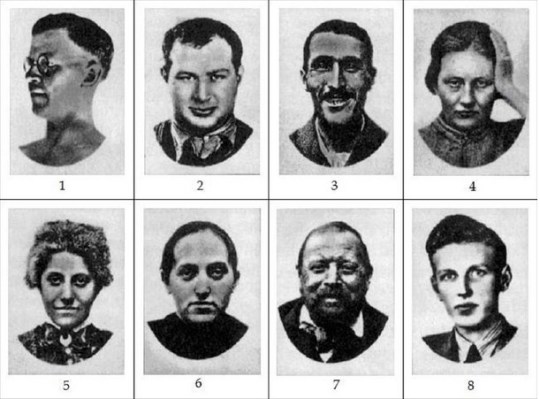
Which of these 8 do you find the most 'scary'?
Really, really try to picture them in a dark alley, coming towards you. Or, who would you want the LEAST to be in an elevator with you? Overall, who gives you the creepiest vibes, or makes you feel disgusted and repulsed among these 8.
Remember your answer.
These are all pictures of patients of Szondi, all of which whom suffered different conditions. Szondi believed that who you pick will tell something about your personality. But not just anything about your personality. The part of you that you suppress or at least deny about yourself. maybe you pushed these feelings and desires down into your subconscious mind or maybe something you refused to accept about yourself. and act in opposition towards them.
It's important to note that, whatever results you do come with, doesn't mean you have a mental condition. It's just that, you potentially have something deep within you that you compensate for.
Most people find the results rather accurate, though. Take them with a grain of salt.
The format is.
(Number). -condition name-
( General Info )
---
Repression: What it is you're hiding.
Denies it by: Actions, personalities or habits you do to 'counteract' or push back against what you're repressing.
Sublimination: What you show, ever so slightly in your life regarding the repression.
___________________________________
1. The Sadist.
You were most likely dominated by a lot of authoritarian figures, such as parents or teachers. So you repress the feeling to dominate others, as you've been through your formative years.
You are passive and rather friendly and love to make people happy.
That being said, you react defensively in a passive-aggressive manner when you feel someone is trying to dominate you. This is your way of indirectly punishing them.
But deep inside, you love to see the suffering of other people, physically or emotionally. Though, consciously you do your best to ignore these thoughts whenever they surface.
---
Repression: The Desire To Dominate Others.
Denies it by: Developing a peaceful and harmless personality. Always helping others.
Sublimination: Creates barriers when they don't want to do something. ( Such as getting to work late) When acting defensively, acts passive-aggressively.
_____________________________________
2. The Epileptic.
You react to motions rather intensely, good or bad. Since you were taught as a child that doing certain things aren't okay, you refuse to let negative emotions such as anger, impulsiveness or irritability manifest.
As such, you probably wear a strong emotional mask and are good at hiding the negative feelings from others whenever they bubble up under the surface.
You compensate by acting meek and friendly. And people probably see you as peaceful and reliable. Although, under pressure. You can explode with these negative feelings and most people are surprised, as you never seemed the person to be so negative.
Repression: Feelings of anger, irritability, and aggression.
Denies it by: Becoming a meek and friendly person, and giving off the impression of responsibility.
Sublimination: Rare outbursts when stressed or provoked.
___________________________________
3. The Catatonic
You're most likely an intelligent person with an overactive mind. Not so bad, right? Well, here's the trade-off. In the attempt to stay in reality and fight your overactive brain, you've most likely become dutiful, inhibited and rule-driven. You are unaware of the physical and emotional needs of yourself and others. and often feel disconnected and lost.
Repression: Mental hyperactivity/ overactive imagination
Denies it by: Adopting "stereotypical" behaviors.
Sublimination: Often acts defensively and likes to follow their own set of determined rules.
_______________________
4. The Schizophrenic
If you've chosen this woman, then you're most likely repressing apathy for others. Probably struggle in connecting with others. And relating to others is a challenge for you. Maybe even relating to yourself. Your relationships probably lack depth.
To compensate, you're sociable. Love to spend time with friends and family. In a sense, this is a way to mask your sense of loneliness and isolation.
Repression: Feelings of apathy towards others.
Denies it by: Being a very sociable person, with a large circle of friends.
Sublimination: Does not talk about feelings of isolation, or their lack of true affection for others.
__________________________
5. The Hysteric.
You're probably repressing attention-seeking tendencies. You were told as a child to not show off, by adults or peers. As such, you're probably a modest and sincere person. Deep down you love to be the center of attention and charming others. Though you're rarely the center of attention, when you are, you're ecstatic You're likely someone who pays attention to detail. As evidence of the amount of effort, you put into your appearance. This could be your subconscious self showing off, as your conscious self continues to act modestly.
Repression: Desire for attention and admiration.
Denies it by: Acting modestly / staying out of the spotlight.
Sublimination: Chooses rare or extravagant jobs and hobbies. Usually tries to remain elegant and well-dressed so that they still draw attention.
___________________________
6. The Depressive.
On the surface, you're happy and bubbly. Like you don't have a care in the world. Well, that's the side you show to the world, at least. Deep within, you're most likely dealing with feelings of self-worthlessness, even self-loathing and guilt. You probably take your mind off this by focusing on work and other people. Low self-esteem is also associated with this choice.
Picking this picture doesn't mean you're a depressed person, but that you have a predeposition to negative emotions.
Repression: Feelings of worthlessness/inadequacy
Denies it by: Developing a happy and bubbly exterior personality. Focussing on work and friends.
Sublimination: Assumes the role of everyone's "psychologist", searching for solutions to other people's problems.
_________________________________
7. The Maniac.
You're most likely logical, mature and balanced. You don't favor chaos or excessive displays of emotions. You're likely annoyed when people are loud, or when they hold too strong of belief. Because inside. You're repressing hyperactive tendencies that would make you lose control. Deep within, you're probably quite impulsive and with extreme energy hurdles. This is probably because your parents or teachers tried to make you "calm down" as a child.
Repression: Impulsiveness and high energy levels.
Denies it by: Being logical, reasonable and collected, and developing a hatred of excesses.
Sublimination: Avoids places of temptation, such as casinos.
____________________________
8.Dissociative Identity Disorder.
As a child, you've probably been bullied, defamed, or traumatized by a parent, teacher or other family member. This trauma has made you subconsciously make you question yourself as a sexual partner. Now, you probably push your own gender role. Such as being macho, as a man. Or pushing your feminity as a woman. You probably put down others of your own sex for not acting manly or womanly enough.
Repression: Thoughts of being an undesirable partner.
Denies it by: Emphasising gender role, acting very macho or feminine.
Sublimination: Sacrifices individuality and real interests to conform to expected male/female stereotype
_____________________________
Being an old psychoanalytic test, don't expect things to be 100% accurate. Was it accurate for you? And as always, take it with a grain of salt.
0 notes
Text
Top 10 Albums of 2016
10. Weezer (White Album) – Weezer
After countless attempts to appease their hardcore fans dating back to their Blue Album and Pinkerton era, with the White Album, Weezer made a long-awaited return to their alternative rock roots. Each track channels a pop-friendly nerd rock despite the apparent anxiety embodied by every other line Rivers Cuomo utters. Sticking to their guns, Weezer also employs satisfyingly sharp solos with flair, as exemplified on “California Kids,” “L.A. Girlz,” and “Do You Want To Get High?”
The album’s highlight, however, lies in “Thank God For Girls.” On it, the band pours their heart out with every falsetto, each exclamation of “thank God,” and the tumultuous instrumental as drums pound away beneath the urgent guitars and bass. The album’s near-perfectly consistent quality on the majority of these tracks ensure each song’s memorability, unlike the band’s previous efforts in the past decade that all left much to be desired. With the White Album, Weezer fans can finally rejoice to the band’s first faithful comeback to their beloved original sound in years, a change that will hopefully be retained through the band’s future projects.
Listen to: “Thank God For Girls”
9. 22, A Million – Bon Iver
With this latest project, frontman Justin Vernon made an ambitious leap from his previous acoustic-oriented sound to incorporate elements of electronic music, from sampling to digitized drums. These shifts in musical style were not only brilliantly executed but also crafted in a way such that the fragility and tenderness of each melody Vernon sings are preserved. On tracks such as “29 #Strafford APTS,” Vernon’s vocals are blended against the strumming of his guitar, gradually escalating in distortion yet maintaining a distinct feeling of humanity.
In addition, Bon Iver traverses conceptual territories left unexplored on the band’s previous albums. With themes of existentialism and religion combined with the album’s concept of cryptic numbering present in both the lyrics and track titles, this is some of the band’s finest work to date.
Listen to: “29 #Strafford APTS”
8. Puberty 2 – Mitski
This indie rock gem might not seem that appealing on first listen, but will certainly grow on the patient listener. Mistki interlaces her songs with delicate intimacy, opening up her heart and revealing her most personal confessions of her insecurities to all her listeners. Angst-ridden and anxious, Mitski’s voice ranges from weary whispering, wavering with uncertainty when on “Once More to See You” meanwhile it quivers with heartfelt explosions of emotion deserving of its title on “My Body’s Made of Crushed Little Stars.”
Yet despite Mitski’s intrinsic worries, she is faithful that she will move past this transitional period as if she is undergoing a second pubescent phase, hence the album’s title, as a millennial in her mid-twenties: “One morning this sadness will fossilize/And I will forget how to cry.” Each track echoes with a similar depth and shows a clear progression in maturity, as epitomized by the album’s finale where she states with conviction her decision to start anew. Consistent and confessional, Puberty 2’s poignancy makes it a guaranteed highlight in Mitski’s career, one that has yet to come into full bloom.
Listen to: “Your Best American Girl”
7. Atrocity Exhibition – Danny Brown
Few hip-hop albums achieve a level of thematic darkness comparable to Danny Brown’s latest work. From his first bar to his last, Brown channels a persona of an isolated, psychotic junkie in a nasally, high-pitched timbre that sets a distinctive rapping voice recognizable anywhere. Not a single track lapses in high energy and rapid flow of innovative rhymes. Furthermore, the production in each song is executed in brilliantly bass-heavy beats that thump with an undying momentum. From homages to Nine Inch Nails to samples of Joy Division, Brown’s numerous references to some of the darkest bands present in rock goes to show the sophistication of the album’s narrative.
As his voice croaks out the urgent rhymes on the album’s opener, “Downward Spiral,” Brown states, “the worst nightmare for me is a normal dream.” Given the album’s disturbing extremity and its innovative approach to hip-hop, such comes as no surprise.
Listen to: “Really Doe”
6. Bottomless Pit – Death Grips
Relentless, unforgiving, and ear-splitting, Death Grips comes back as aggressive as ever with Bottomless Pit. MC Ride’s visceral vocal performance manically corrodes through intricately layered electronic beats produced at unbelievably fast tempos with the help of drummer Zach Hill and keyboardist Andy Morin. This perfectly calculated migrainous assault of noise is at times discomforting but remains strangely enjoyable amidst the tumultuous walls of noise firing back and forth from ear to ear. Listeners are not even granted a slight moment of tranquility, even if MC Ride tempers his usual explosive vocals on tracks such as “Eh,” the instrumental remains as neurotically fast as ever.
Furthering their former explorations of a more punk-infused style as heard on Jenny Death, “Spikes,” “Bubbles Buried In This Jungle,” and “Bottomless Pit” erupt in abrasive cascades of sound, shaping an impenetrable menace that melds the extremes of hip-hop and electronic into one cohesive album, not to mention the chaotic “Hot Head” and “Three Bedrooms In A Good Neighborhood.” Bottomless Pit is not another album you can just listen to casually; like many other albums on this list, it is something to be experienced.
Listen to: “Spikes”
5. WORRY. – Jeff Rosenstock
“Love is worry,” Rosenstock sings on the final moments of WORRY, an all-inclusive personal account of every social trouble and feelings of dejection or hurt he has ever experienced. Sporting a borderline pop-punk sound, Rosenstock’s anecdotal narratives are sung over unexpectedly melodic instrumentals that are simultaneously catchy and gritty. When the album reaches its energetic climaxes, Rosenstock’s voice rasps in rough yells, shouting catchy melodies at the top of his lungs reminiscent of memorable catchy pop hooks, yet sporting messages that such pop artists would never dare to address; on “Festival Song,” a clear satire of the music industry’s tendency to create songs that audiences can sing along to, he chants, “they wouldn’t be a friend if you weren’t worth something.”
Addressing social issues of all forms, Rosenstock comments on his dealings with drinking on the song “Wave Goodnight To Me” and “I Did Something Weird Last Night,” while describing his feelings of longing on “Pash Rash” and “Staring Out The Window At Your Old Apartment,” and rather unexpectedly, society’s numbness to mainstream media and obsession with social media on “To Be a Ghost.” Although on the surface these topics may seem cliché, Rosenstock’s boisterous delivery makes this album an invigorating listen.
Listen to: “Festival Song”
4. Psychopomp – Japanese Breakfast
After hearing the news of her mother’s failing health, Michelle Zauner, frontwoman of the Philadelphia-based emo band Little Big League, split her efforts into a solo project after moving to provide care in the months leading to her mother’s death. After writing a song every day during a single month, Zauner curated and polished her vast amount of material into a concise collection of nine tracks that barely span over twenty-five minutes. The result is Psychopomp, an album of raw emotion with no fluff or filler. Zauner’s dreamy vocals adorn ethereal instrumentals similar to the soundscapes of shoegaze, singing lyrics that glow with heartache, “Oh do you believe in heaven?/Like you believed in me.” Yet her most emotive lines are not necessarily always the most abstract, she continues to pack pure passion in precise and direct lines worthy of just as much awe on “Heft,” where she sings, “I spent the summer trying to be sweeter/I spent the summer staying in.
However, the emotional baggage Zauner carries does not wear her down in any way. On the songs “The Woman That Loves You” and “Everybody Wants to Love You,” the album breathes to life with vitality in euphoric bursts. Overall, the album’s sound is comparable to that of dream pop, as if it took the voice of Grimes and wrapped it in an atmosphere of airy reverberating guitars, yet no other album has ever managed to sound quite like it.
Listen to: “Heft”
3. Blackstar – David Bowie
In art rock icon, David Bowie’s final album, released just days before his death, the premonitory Blackstar acts as a self-written elegy and a final goodbye through song. “Look up here I’m in heaven/I’ve got scars that can’t be seen,” Bowie’s shuddering voice breathes out on “Lazarus,” a track that now perceived through a retrospective lens carries a hauntingly accurate truth. Bowie reflects on his career on the highly metaphoric title track, “Blackstar,” guiding us through every stage of his life until he withers away as a solitary candle, a gradually fading light. Each track delves further into such themes as Bowie grapples with death as he approaches and accepts its inevitability.
Unlike most albums that deal with death, Bowie’s startling proximity to it separates it from any other work that has ever attempted to achieve such an ambitious feat. Not only is this work different from those of other artists, but also from Bowie’s own previous projects. In the songs that use it most prominently, the incorporation of horns and bass creates jazz-like grooves that complement the chaotic state of mind presented on the lyrics. Otherwise, their rather sparse and distant instrumentation leaves the spotlight on Bowie’s vocals and rightly so. Ominous, prophetic, and terrifyingly profound, Blackstar is an album that leaves a lasting impression, a strong end to Bowie’s legendary discography.
Listen to: “Lazarus”
2. A Moon Shaped Pool – Radiohead
After literally disappearing completely from the face of the Internet in the middle of 2016, Radiohead fans went amok in speculation on the band’s long-awaited follow-up to 2011’s The King of Limbs. Making their return with lead single “Burn The Witch,” the band’s most politically charged song since 2003’s Hail To The Thief, fans were greeted with a much-welcomed change in style. Likely in part due to guitarist Jonny Greenwood’s solo work on motion picture soundtracks such as on There Will Be Blood and Inherent Vice, A Moon Shaped Pool’s orchestration is unlike any other Radiohead album, literally. In addition to the usual mix of guitars, bass, and synths, strings embellish a large handful of the album’s songs, from the pizzicato that open the album on “Burn The Witch,” to the shimmering notes hanging in the background on “Glass Eyes,” to the pronounced refrains on “The Numbers,” the band’s new asset is always exercised to its full potential.
In light of lead singer Thom Yorke’s recent divorce with his now late ex-wife, A Moon Shaped Pool contains songs of heartbreak such as the subtly atmospheric “Daydreaming” and “True Love Waits,” a song that dates back to the band’s days in the 90’s, yet never having been recorded and released properly on a record until now. More spectral and minimalistic than any other of the band’s former performances of it, “True Love Waits” not only ends the album fittingly from a thematic standpoint but also with its eerie sonic mellowness. In short, A Moon Shaped Pool is nothing short of a hallmark in songwriting in Radiohead’s discography, and that’s saying something.
Listen to: “Daydreaming”
1. Teens of Denial – Car Seat Headrest
If teen angst were a film, Teens of Denial would be its soundtrack playing during the credits. Everything from its lyrics, which are nothing short of genius, to its indie rock sound, and to the lo-fi production are perfect complements to the anxiety present in each and every thought of the mastermind behind it all, songwriter, singer, and guitarist, Will Toledo. Growing out of the stages of late adolescence so thoroughly developed on Toledo’s earlier works, namely How To Leave Town and Teens of Style, on Teens of Denial Toledo enters a stage of early adulthood, complete with stories of drinking, drugs, and depression.
Thrown into a host of awkward situations of being pressured into drug use, Toledo announces, “Last Friday I took acid and mushrooms/I did not transcend, I felt like a walking piece of shit” on “Drugs With Friends” yet confirms that his life “doesn’t have to be like this” on the lead single, “Drunk Drivers/Killer Whales.” Regardless, we see that some transformation has taken place from his portrayed personas on his former albums, a change that even Toledo cannot deny as his voice cracks while screaming on “Destroyed By Hippie Powers,” “What happened to that chubby little kid who smiled so much and loved the Beach Boys?”
Despite crossing the threshold into this world of negative influences and social pressures, from the opener, “Fill In the Blank,” we are informed that Toledo remains the same old nervous wreck we’ve always known him to be, confidently declaring, “I have a right to be depressed/I’ve given every inch I had to fight it.” Epitomized by the album’s lengthiest yet also the punchiest tracks, Toledo’s depression devastates him completely. The fluid stream of consciousness on “Vincent” discloses thought after thought like snapshots of his depression. Similarly, “Cosmic Hero” is filled with witty lines that provoke introspective thought: “And if you really want to know how kind you are/Just ask yourself why you’re lying in bed alone.” Comparable to Car Seat Headrest’s previous epics, such as “Beach Life-In-Death” and “The Ending of Dramamine, the album reaches its peak on the “Ballad of Costa Concordia,” a multi-movement emotional rollercoaster lasting eleven minutes in length. Characteristic of Toledo’s growth throughout the album, the song is climactic, at levels incomparable to any of the album’s other tracks, but is most of all cathartic.
If Teens of Denial marks Will Toledo’s departure from an era of teenage angst, it also marks the beginning of a newfound feeling of young adult ennui. Not only is it an essential listen for 2016 but also for the indie rock genre. It is an album that will be remembered as the anthems that defined a generation of anxious kids growing up against a weary world and surviving it against all odds.
Listen to: “Drunk Drivers/Killer Whales”
1 note
·
View note